

Addressing unprecedented polarization in Oregon communities Bridging the Political Divide ALSO IN THIS ISSUE Spring Conference Recap Municipal Fundamentals Reclaiming Municipal Water The Magazine of the League of Oregon Cities Q2 2023 Local Focus


Aug. 9 - 11, 2023 | Salishan Coastal Lodge, Gleneden Beach Save the Date: CIS Public Safety Conference • Tactical Trauma Training • Civil Litigation Trends • Employment Law Trends • Improving Employee Commitment by Building Trust • Strategic Use of Social Media: Operationalizing Public Messaging Registration free for members with general liability coverage. Visit cisoregon.org/publicsafety for more information.



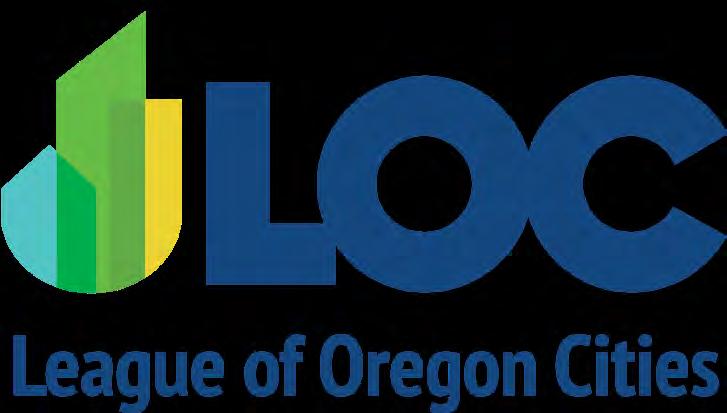
SECOND QUARTER 2023 The Magazine of the LOC 35 21 CONSERVATION CORNER 98TH ANNUAL CONFERENCE 8 3 www.orcities.org Second Quarter 2023 | LOCAL FOCUS ON THE COVER OTHER FEATURES 18 AT THE LEAGUE Local Focus 5 A Message from the Executive Director 6 Record Attendance at Spring Conference 9 Staffing Update 12 City Deadline Calendar 34 TGM 2023 Grant Application Now Available; Webinar Scheduled 35 Can Municipal Water be Reclaimed to Benefit Your Community? 37 Around the State – City Stories: Talent, Monmouth/Independence, Redmond, Lowell, Ontario, Hillsboro Local Leaders Address Public Civility, Miscommunication Tools for Fighting Misinformation What Limitations Can Cities Place on Public Comment in a Public Forum? Excluding and Evicting Residents from Public Facilities – Is it Ever Right? 18 22 26 28 30 How Can Cities Function Effectively Amidst Political Polarization?
Did
• Over 240,000 water main breaks occur each year in the U.S.*
• 78% of homeowners surveyed believe their municipality should educate them on repairs and preventative measures** NLC
• Educates homeowners about their service line responsibilities

• Provides solutions that help address aging residential infrastructure
• Offers affordable plans to protect homeowners from the high cost of service line repairs
• No cost to the city
2023 LOC BOARD OF DIRECTORS

OFFICERS
President
Steve Callaway, Mayor, Hillsboro Vice President
Dave Drotzmann, Mayor, Hermiston Treasurer
Travis Stovall, Mayor, Gresham
Immediate Past President
Taneea Browning, Councilor, Central Point
DIRECTORS
Robert Cowie, Councilor, Chiloquin
Rod Cross, Mayor, Toledo
Aaron Cubic, City Manager, Grants Pass
David Emami, Councilor, Happy Valley
Jessica Engleke, Mayor, North Bend
Roberto Escobedo, Councilor, Nyssa
Carol MacInnes, Councilor, Fossil
McKennon McDonald, Councilor, Pendleton
Tita Montero, Councilor, Seaside
Beach Pace, Councilor, Hillsboro
Chalice Savage, Councilor, Cottage Grove
John Walsh, City Administrator, St. Helens
Kenna West, City Manager, Independence
Ted Wheeler, Mayor, Portland
MAGAZINE STAFF Editor
Kevin Toon, ktoon@orcities.org
Designer

Julie Oke, jmoke@orcities.org
Contributing Writer

Melody Finnemore, precisionpdx@comcast.net
* https://www.infrastructurereportcard.org
** 2017 IPSOS Survey of HomeServe policyholders and non-policyholders
Contact: Dennis
• Regional Director Dennis.Lyon@HomeServeUSA.com 412-266-9545 • www.servicelinepartner.com
Educating residents together.
Lyon
you know?
Line
Program: Join the more than
partners
work with us to help
homeowners.
Service
Warranty
850
that have chosen to
protect their
4 | Second Quarter 2023 www.orcities.org
articles and views expressed in Local Focus do not reflect any direct or implied endorsement by the League of Oregon Cities unless specifically stated as such. Publication of
advertisement should not be considered an
Non-member subscription rate: $96 per year Published
any
endorsement of the product or service involved.
Local Focus is published quarterly by: League of Oregon Cities 1201 Court St. NE, #200 Salem, Oregon 97301 (503) 588-6550 • Fax: (503) 399-4863 www.orcities.org
Local Focus
Disagreeing Without Being Disagreeable Starts at the Top
When I went to law school more than 20 years ago, it never occurred to me that I was starting on a path that would see me spending multiple decades working on behalf of cities. This path I have travelled has shown me a lot—both good and bad. The good has always outweighed the bad, always. And I think the good still outweighs the bad—it’s just harder to see and easier to overlook.
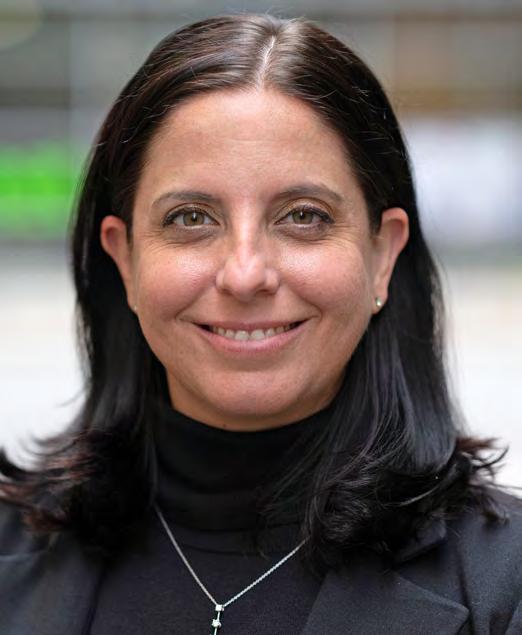
Today, at least if one spends too much time reading the news or scrolling through social media, the bad seems to be winning. The bad in government is the fighting, the partisan politics, the name calling, shouting, disrespect, and sometimes outright hate.
Whatever happened to disagreeing without being disagreeable?
When did yelling become more impressive and respectable than calmly resolving a dispute?
Where did the golden rule I learned in preschool go (if you don’t have anything nice to say, don’t say anything at all)?
Disagreeing without being disagreeable starts at the top. For those who work in local government, the top is the city council. If city leaders want the golden rule to be followed, they need to embrace it themselves. Leaders need to lead their community, and

themselves, through difficult times with respect, decorum, and professionalism. During the LOC’s Elected Essentials training program, a significant amount of time is spent discussing the qualities of a high functioning council—and one of the key qualities is the importance of communication. This training encourages city officials to do the following, particularly during difficult and potentially contentious exchanges:
• Avoid using words like “always” and “never”;
• Use “I” statements;
• Beware of non-verbal cues that you may be unwittingly sending;



(continued on page 11)

FROM THE
EXECUTIVE DIRECTOR
5 www.orcities.org Second Quarter 2023 | LOCAL FOCUS
Patty Mulvihill LOC Executive Director
At the League
Seaside Welcomes Record
Attendance
for LOC Spring Conference
On April 25-26 at the Seaside Convention Center, the LOC hosted its third in-person Local Government Spring Conference, and just like the previous two in Ashland (2019) and Hermiston (2022), the event was a huge success.


The conference was attended by more than 200 city leaders representing 90 communities from across the state. From Baker City to Brookings, and Burns to Warrenton, Oregon’s municipal officials came out in force to educate themselves and each other on matters of significant regional concern.
Education and networking, like any LOC conference, were the focal points of this event. The program kicked off with a keynote address from Oregon Housing and Community Services Executive Director Andrea Bell, who reaffirmed that her agency is a reliable partner for cities in the statewide response to the ongoing homelessness crisis.
During the two-day event, 15 training workshops were offered, and topics included: infrastructure funding; housing and homelessness; cyber security; diversity, equity, and inclusion; city-state partnerships; and the First Amendment. Initial feedback from conference attendees described the overall program as “relevant,” “timely,” and “substantive.”
Networking opportunities were sprinkled throughout the agenda, highlighted by a short trip by bus to Astoria for a Welcome Reception at the Loft at the Red Building.
During Wednesday’s midday general session, North Bend Mayor Jessica Engelke moderated a panel discussion involving representatives from four state agencies: Business Oregon, the Oregon Health Authority, the Oregon Department of Land Conservation and Development, and the Oregon Department of Transportation. The lively and informative discussion focused on high-level collaboration and problem solving between city leaders and state agency representatives.
For the LOC members, guest speakers, generous sponsors, vendors, and guests who attended the Seaside Spring Conference, your LOC staff sends its sincerest thanks for an awesome event. And to those of you who could not join us on the coast, we hope to see you in Eugene for the 98th Annual LOC Conference in October.
6 | Second Quarter 2023 www.orcities.org
Sponsors









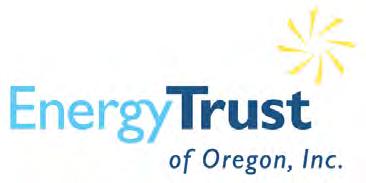






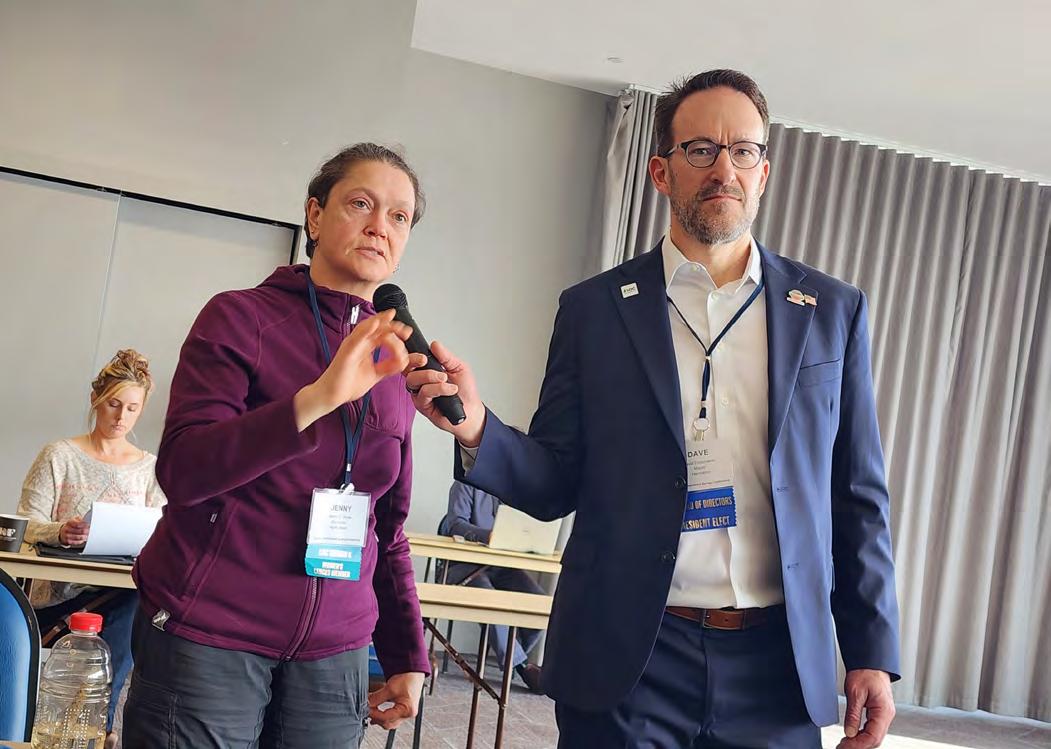

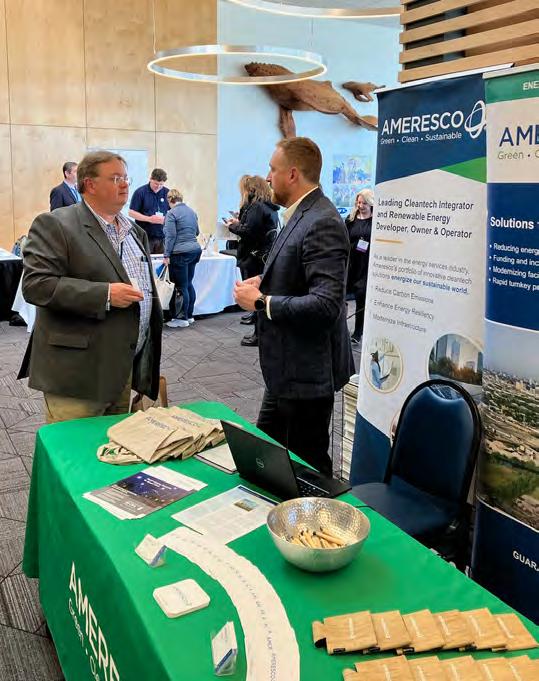

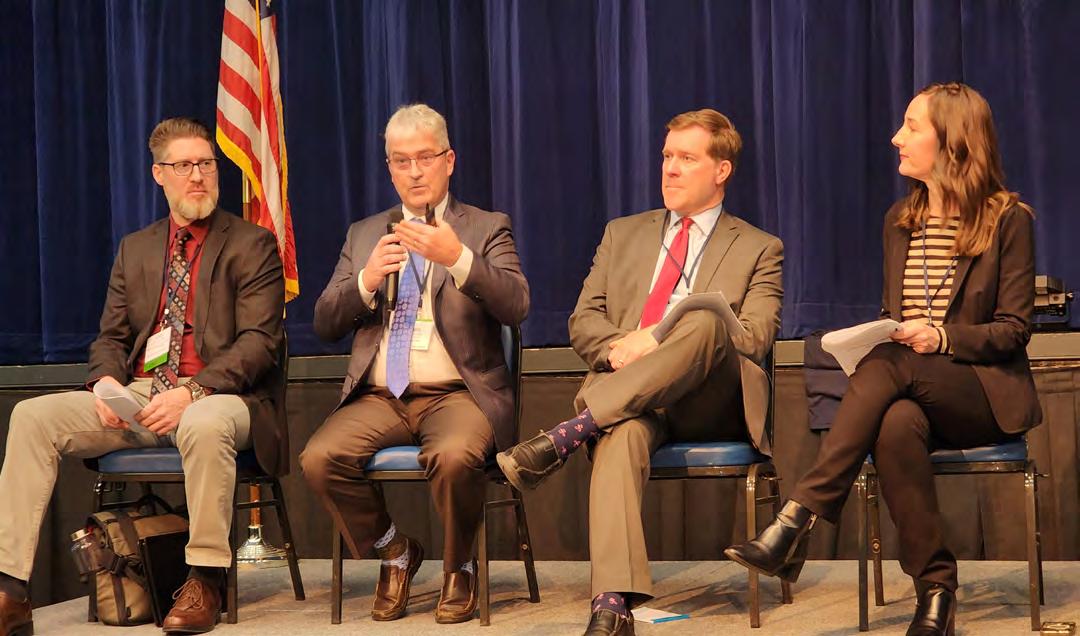
AT THE LEAGUE
THANK YOU Spring Conference
7 www.orcities.org Second Quarter 2023 | LOCAL FOCUS
ANNUAL CONFERENCE 98TH
OCTOBER 12-14 • GRADUATE EUGENE
Plan Now to Attend the 98th Annual Conference!
Don’t miss out on the LOC’s premier training and networking event for city officials. The 98th LOC Annual Conference will be held October 12-14 at the The Graduate in Eugene.


Budget Now to Attend the Annual Conference
Here are estimates cities can use in their FY 2023-24 budget process to plan for registration and event costs.
Note: Conference registration closes on September 29. After September 29 registration must be done on-site and will cost an additional $50.
For Your City’s Calendar
May
Award Nominations Open – watch the LOC Bulletin every Friday for information on how to submit an entry for one of our prestigious awards.
June
The application period for conference scholarships opens June 1. Watch the LOC Bulletin and the conference webpage for more information on how to apply for financial assistance.
July
Registration and hotel reservations open July 13. Watch the LOC Bulletin and the conference webpage for more information on how to register and reserve your hotel room, along with other conference details.
October
See you at the conference!
AT THE LEAGUE
Costs per attendee If registered
–
If registered
LOC Member full registration $425 $475 LOC Business Partners/Associates $475 $550 Non-Member Government $550 $600 Non-Member Corporate $1,250 $1,300 Awards Dinner $50 $50 Special Tours/Workshops/ Seminars (includes OMA, OCCMA, Councilors Workshop and Tours) $50-150 $50-150
July 13
Sept. 8
after Sept. 8
AT THE LEAGUE 8 | Second Quarter 2023 www.orcities.org
LOC Welcomes Jasmine Jones
The LOC is pleased to welcome Jasmine Jones to our Member and Administrative Services Department as an Administrative Assistant. Jones is a graduate of Oregon State University with a bachelor’s in sociology. Prior to joining the LOC, she spent three years working at a non-profit serving individuals with intellectual and developmental disabilities filling various roles. She is eager to use her administrative and interpersonal skills to best support LOC members. Welcome, Jasmine!
LOC Staff Members Promoted
Congratulations to the following LOC employees on their recent promotions:
Elizabeth Angulo was appointed as Senior Accountant in April. She had served as the Accounting Specialist for two years, and has shown that she is more than capable to excel in the newlycreated Senior Accountant position.
Steffany Sweet was promoted to Training Coordinator in March. Steffany was hired in September 2022 as an Administrative Assistant and in her new role will oversee LOC’s training program and Small Cities program.
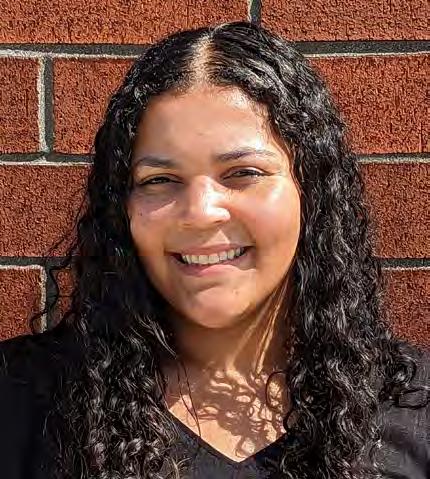
Lindsay Tenes was hired as a limited duration employee in January to help the Intergovernmental Relations team with its lobbying efforts in the tax and finance arena. Lindsay has accepted a permanent postion with the LOC.
Request Printed Copies of the Local Focus
The Local Focus magazine is distributed quarterly by email to city officials and local government partners. To opt-in to receive a printed copy in the mail, fill out the form at the link below.
Opt-In for a Printed Copy (bit.ly/3F22xSp)
Are
You Signed Up for the Bulletin
LOC Board Meets Prior to Spring Conference
The LOC Board of Directors held their second meeting of 2023 April 24 in Seaside. There were no action items for the board to consider during this meeting, instead they received information on the LOC’s financial system upgrades, the work being done on securing homeless funding for cities, the ongoing President’s Regional Meetings, a personnel update, a legislative update, information on where things stand with the Oregon School Boards Association regarding the potential sale of LOC’s interest in the jointly held cottages next to the Local Government Center, and updates on work being done by LOC committees, caucuses and affililates.
The next meeting of the LOC Board of Directors will be June 23 in Hillsboro.
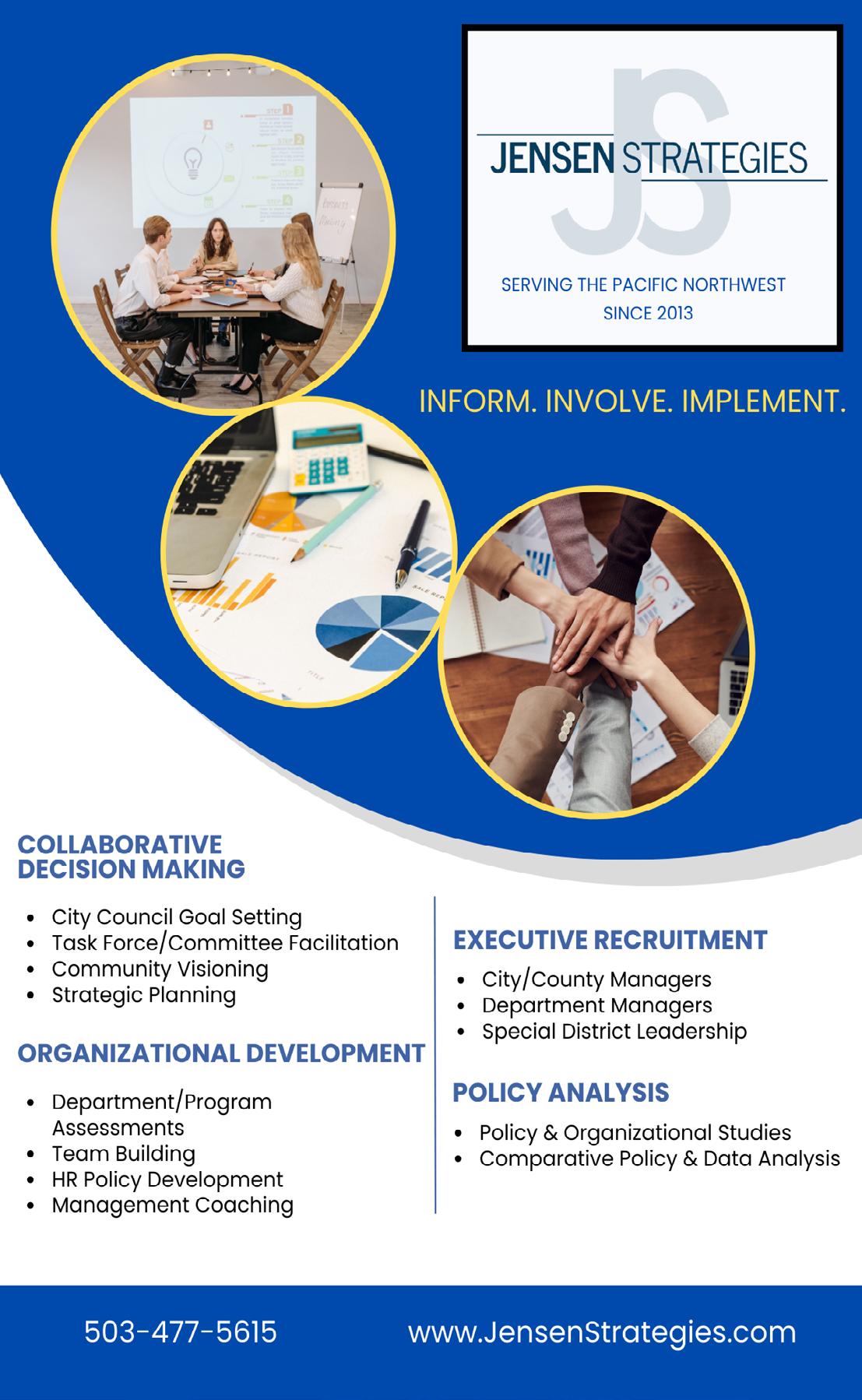
AT THE LEAGUE
Each and every week, the LOC Bulletin brings the latest news of interest to Oregon’s cities directly to your email inbox. To be added to the list, send a request to loc@orcities.org. ? 9 www.orcities.org Second Quarter 2023 | LOCAL FOCUS
Small Cities Meetings Schedule
Upcoming Meetings
North Coast (Region 1)
Warrenton – August 4
Portland Metro (Region 2)


TBD – June 21
North Willamette Valley (Region 3)
Sheridan – August 10
South Willamette Valley (Region 4)
TBD – August 11
The Small Cities Network is a League program for cities with a population of 7,500 or less, with quarterly meetings to network and discuss common issues and solutions.
All meetings start at 11:00 a.m. Register at www.orcities.org under Training & Events > Small Cities Program.
Central Coast (Region 5)
Florence – May 17
South Coast (Region 6)
Gold Beach – May 18
Southern Valley (Region 7)
Winston – June 8
Columbia Gorge (Region 8)
TBD – June 15
Central Oregon (Region 9)
Culver – June 16
South Central Oregon (Region 10)
TBD – June 9
Northeast Oregon (Region 11)
TBD – July 19
Eastern Oregon (Region 12)
Sumpter – July 20
With more than 80 lawyers in ten cities, we are the largest firm devoted solely to public finance and public projects in the United States. As Bond Counsel or Disclosure Counsel, we cover every area of public finance law.
For more information contact:
Hawkins Delafield & Wood LLP 200 Southwest Market Street, Suite 350 Portland, OR 97201 503-402-1320

New York ▪ Portland ▪ Los Angeles ▪ Sacramento ▪ San Francisco ▪ Newark ▪ Raleigh ▪ District of Columbia ▪ Hartford ▪ Ann Arbor Hawkins is ranked #1 Bond Counsel in Oregon, as published in The Bond Buyer . AT THE LEAGUE 10 | Second Quarter 2023 www.orcities.org
• Make sure you’re engaging in a dialogue, and not debating with colleagues;
• Listen to learn, not to find flaws in someone’s argument; and
• Don’t focus on the differences, search for commonalities and agreement.
Stand in solidarity with those who have been wronged. Speak out, take a stand, and support those colleagues and community members who are targets of discrimination, disagreeableness, and nastiness. As local government officials, the First Amendment oftentimes feels limiting in its ability to prohibit the damaging words some may spew. But while leaders cannot control what others do, standing in solidarity with those who have been harmed goes a long way to defining the type of leader you are, and building the community you want.
Many years ago, I represented a city in a strong-mayor form of government. The mayor was not a part of the council; instead, the mayor was the head of the city government, running the city as its chief administrative officer. Because the mayor was not a member of council, the mayor did not attend council meetings. During a council meeting, a councilor called me a liar, doing so

(continued from page 5) Speed Awareness Monitor StreetDynamics.com 1-800-782-5537

20 minutes into working on other business, I felt a tap on my shoulder, I turned around to see the mayor. The mayor, who had not been present, but had been watching the meeting on TV at home, asked me to step aside, and he took the floor. In taking the floor the mayor stated unequivocally that a council member calling a member of staff a liar was disgraceful and unacceptable. He directed all city staff to leave council chambers, advising the council staff would not return until a public apology was made and the council committed to conducting its business with decorum and professionalism.
Many would assume what I remember most about that experience is being called a liar in a public meeting. In reality, what I remember most is the mayor taking a stand; driving 20 minutes to city hall, to stand up and say that what I had experienced was unacceptable. I remember the mayor providing me support— he took a stand.
Speed sign on the outside Traffic Data Collector on the inside
FROM THE EXECUTIVE DIRECTOR SAM Trusted by more State Police agencies than all other radar brands combined.

Governing is hard. Even in Oregon, where local government positions are nonpartisan, politics still comes into play. Government and politics inherently lead to disagreements; it’s natural and expected. Disagreeing without being disagreeable is possible—but only if city leaders embrace that ideology, practice AT THE LEAGUE 11 www.orcities.org Second Quarter 2023 | LOCAL FOCUS
City Deadline Calendar
Important statutory deadlines cities need to know
May 28
May 16
ELECTION DAY – Special
Note: Double majority rules apply for property tax measures.

May 19
Budget: Hearing and Public Hearing on State Shared Revenues
Budget: Cities must hold at least one hearing on the budget document as approved by the budget committee. Additional hearings may be held. State Shared Revenues: Cities must hold at least one hearing, after adequate public notice, regarding state shared revenues. We recommend holding this hearing during the budget hearing before city council. Cities are advised to consult with their budget officer and city attorney on how to incorporate this hearing requirement into their budget process.
Note: Depending upon a city’s size and total budget, the budget process may begin sooner or later than noted. This budget deadline is therefore suggested, not statutory.
Budget: File List of Public Improvements with Bureau of Labor and Industries (BOLI)
No less than 30 days prior to adopting a budget, cities must submit to BOLI a list of every public improvement the city plans to fund in its budget period. The required WH-118 form, which lists all the information that cities must provide, is available from BOLI at www.oregon.gov/boli/WHD/PWR/Pages/ PWR_Forms_Directory.aspx
Note: Depending upon a city’s size and total budget, the budget process may begin sooner or later than noted. This budget deadline is therefore suggested, not statutory. As stated, however, the city must file this list no less than 30 days prior to adopting its budget.
JUNE
June 21
August Election: File Statements of Offices, Candidates and Measures with County
City elections filing officer must file no later than the 61st day before the date of the election. Thursday, June 22 is this year’s deadline to file as it is 61 days before the August 22 election.
WE’LL DO EVERYTHING BUT REMIND YOUR KIDS TO TAKE OUT THE GARBAGE. We bring expertise and advanced technologies to Oregon communities to minimize waste, make recycling easy and create renewable energy. Want to know more? Contact us. Dave Huber Public Sector Solutions 503.849.2310 dhuber@wm.com Always Working for a Sustainable Tomorrow
MAY
AT THE LEAGUE 12 | Second Quarter 2023 www.orcities.org
June 23
Budget: Adopt Budget by June 30, Make Appropriations, Levy and Categorize Taxes
Budget: After the budget hearing and before June 30, each city must enact the resolutions and ordinances necessary to do the following: (1) adopt a budget, (2) make appropriations, and (3) levy and categorize any property taxes.
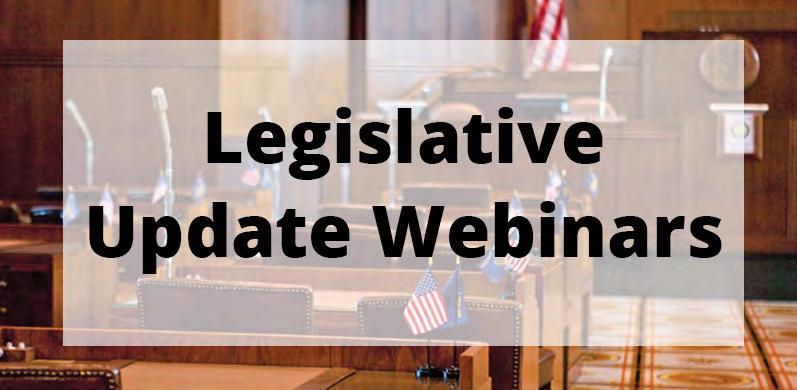

State Shared Revenues: Cities may only receive state shared revenues by electing to receive them. We recommend enacting such a resolution during the meeting to adopt the budget. Cities must submit to the Department of Administrative Services documentation certifying compliance with state law and the city’s intent to receive tax revenues by July 31.
State Shared Revenue from Marijuana Tax: See page 8 for the annual certification deadline. Certification must be made concurrently with the certifications for other state shared revenues. Note: Although the budget process may begin sooner or later than recommended here, all budget resolutions or ordinances must be adopted by June 30.
June 30
BUDGET DEADLINE
June 30
Land Use: Develop Local Middle Housing Regulations
Medium-sized cities (those cities with an estimated population between 10,001 to 24,999) must adopt local land use regulations or amend their comprehensive plans to comply with House Bill 2001 (2019) by June 30, 2023. Medium cities who do not act by June 30, 2023, and do not receive an extension, must apply the applicable model land use code provisions contained in OAR 660-046-0130(5) in its entirety to all proposed middle housing development applications until local provisions are adopted.
Reminder: Public Employee Retirement System (PERS) Reports

City must remit a regular report to PERS Board no later than three business days after the end of the city’s pay cycle. (ORS 238.705; OAR 459-070-0100.)
Download the full 2023 deadline calendar
The complete calendar is available on the LOC website under Resources, then Reference Materials.
AT THE LEAGUE
$ s a l e s @ t o w n w e b . c o m 8 7 7 - 9 9 5 - T O W N t o w n w e b c o m
Clerks & admins love how easy it is to update website through client dashboard! S p e c i a l i z i n g i n M u n i c i p a l W e b s i t e D e s i g n , H o s t i n g & E m a i l F O R A L L O F Y O U R M U N I C I P A L W E B S I T E N E E D S , W E O F F E R T H E . . . Consider our support team your website Virtual Assistants! Never an additional fee for tech support. Request a quote or demo! See why more municipalities are choosing Town Web! Collect Payments Online & through QR codes for: Digitizes your PDFs for instant submission Calendar booking & payment for facility rentals Compatible with your accounting software dog licenses, utility bills, building permits & more! UNLIMITED TECH SUPPORT THE $MART CHOICE! The Power of The Power of HeyGov Citizens Service and Payment Portal: 13 www.orcities.org Second Quarter 2023 | LOCAL FOCUS Join Us Fridays at Noon for the Latest Legislative News LOC Executive Director Patty Mulvihill, Legislative Director Jim McCauley and the Intergovernmental Relations team provide the latest information from the Capitol as the 2023 legislative session continues. When: Fridays at 12 p.m. Learn how to participate via Zoom on the LOC's website: www.orcities.org.
EASIEST TO USE SOLUTION
Despite Unexpected Snow, CIS Virtual Conference Goes on As Planned, Proves Popular





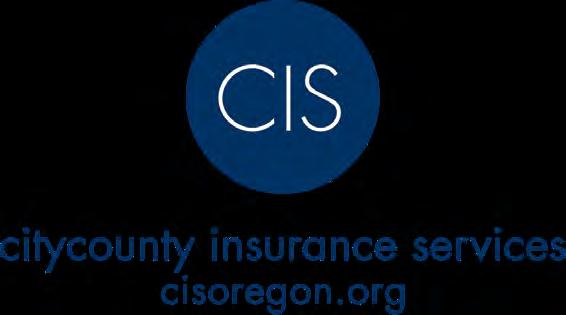
The night before CIS’ Virtual Conference in February, the Willamette Valley experienced significant snowfall that prevented some staff from making it to the studio to participate live in the conference. Thankfully, CIS’ conference planner had pre-recorded some of the presentations, which made the annual conference move forward smoothly, despite the snow. More than 400 people attended, and based on the post-conference survey, nearly all appreciated the expert speakers and informative sessions. Each conference session is still available and can be viewed in the CIS Learning Center.
With the popularity of the virtual conference, it wasn’t surprising that the overall conference was rated 91% Excellent/Good Many attendees took the time to comment about their conference experience:






















You guys continually amaze me. While in-person you usually exceed expectations too, your virtual conferences are by FAR the best that I've experienced, and this one was no exception. Fast paced and packed with important/relevant/timely info. Can't thank you enough!
From Smart Building Services to Central Utility Districts, MacDonald-Miller has the tools, talent and technology to help you become a NET ZERO HERO.






We maximize project budget dollars and reduce operational burden on your staff. You can rest easy, knowing we’ll be by your side every step of the way, as we extend the life expectancy of your equipment by over 30%, and improve the comfort of your occupants, all while maximizing energy efficiency.
Achieving carbon neutrality isn’t just good for the environment, it’s SUPER!









We make buildings work better.
Very well explained and the presenters were well prepared.
Glad that it was a virtual event for many reasons: because of the weather conditions, the expense of traveling, time away from the office and limiting group exposure to any type of virus going around. Participants get the information they need for budget purposes sooner.
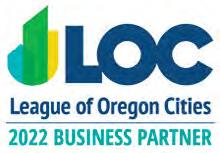





Given the weather, first of all, everyone must be congratulated for making this go off without a hitch! The technology and the music were just right.
Perfect kind of event to announce rates! Appreciated the bullet point style way of talking about the categories of risk that affect rates. Learned about the current pressures on rates and why they are increasing.
Virtual conferences are challenging, and the CIS crew did an amazing job (as usual)!
I thought it was great and informative and everyone did great, considering the snow/changes in venue due to the weather.
You can be a




macmiller.com | Oregon: 971-666-MMFS
14 | Second Quarter 2023 www.orcities.org
Looking Back at 21 Years of CIS Conferences
After the many complimentary comments received about CIS’ February virtual conference, it’s time to reflect on how this signature event has changed over time. CIS launched their first Annual Conference back in 2002. It began as the “Annual Meeting and CIS Risk Management Conference.” The purpose was to increase member involvement in CIS activities. It also served—and continues to serve—as the annual membership meeting as required by CIS’ governance policy.
Today, the conference highlights the coverages and plans available to members, provides updates on changes that affect our communities, and educates attendees about ways to avoid claims and control losses. Because risk management and pre-loss are core functions of our operations, they’re featured prominently. It’s about fostering good risk management practices that lead to reduced claims so CIS can keep rates stable. It’s important to help cities protect their financial health, so the CIS Conference packs the most risk management education into a single event. The event represents CIS’ mission, vision, and values in a single event:
MISSION: CIS provides property, casualty, and employee benefit solutions tailored to the needs of Oregon’s cities and counties.
VISION: Together, CIS helps Oregon’s cities and counties to be safer, stronger, and healthier.
VALUES: Financial strength, innovation, expertise, adaptability, collaboration, integrity, and diversity and inclusion.
CIS Communications, Events, and Projects Manager Julie LaMarche provided insights on how the conference has evolved since 2001. Besides managing and producing the conference, LaMarche manages CIS’ communications efforts, including reviewing, editing, and designing publications, announcements, and presentation materials.
Q: When did you become involved in the planning for the CIS Annual Conference?
A: When I started at CIS in 2005, the conference was coordinated by CIS’ Executive Assistant, who led an internal conference committee. Later in 2007, it was taken over by two CIS staff. When they left CIS—two months before our 2009 conference— I was asked to step in. I’ve organized the conference ever since.
Q: How has the conference evolved over time?
A: When I started 17 years ago, the conference was held at the Embassy Suites near Washington Square in Tigard. Similar to today, it was held in February, and we offered one complimentary registration and covered one-night hotel stay for every member.
(continued on page 16)
Building Inspection & Plan Review Services
No rthwest Code Professionals specializes in serving jurisdictions throughout Oregon, Washington, and Idaho with plan review and building inspections. We have been in the code enforcement business for over 40 years. High standards in customer service is a tes tament to our longevity in this industry, and our entire team looks forward to working with you.

• E stablished in 1973
• Currently serving over 50 Jurisdictions throughout Oregon, Washington, and Idaho
cisoregon.org
DATABASE MANAGEMENT Lorem ipsum dolor sit amet, conse ctetuer adipiscing elit, sed diam nonum. NETWORK ADMINISTRATION Feugait nulla facilisi. Lorem ipsum dolor sit amet, conse ctetuer laoreet dolor. PROJECT MANAGEMENT Nulla facilisi. Lorem ipsum dolorsit amet, conse Partnering with Government to Provide You Excellent Service 144 E 14th Avenue, Eugene, OR 97401 Office: 541-484-9043 TF: 800-358-8034 www.nwcodepros.com
15 www.orcities.org Second Quarter 2023 | LOCAL FOCUS
The 1st Annual Meeting and CIS Risk Management Conference was held in 2002 at the Ramada Inn & Suites near the Portland Airport. Prior to 2002, the conference was like a road show. It was similar to our Fall Supervisor Training series, where our presenters traveled around the state and held sessions regionally.
In 2007, we introduced electronic survey evaluations. In 2010, we went green by discontinuing handing out large binders for each attendee, and instead provided them with electronic copies of the presentation materials.
In 2011, we celebrated our 30th Anniversary and 10th Annual Conference by introducing longevity awards of 20, 25, and 30-years for those members who had continuous coverage with the CIS Property/Casualty Trust. Later in 2016, 35-year awards were created, and 40-year awards were added in 2021.
In 2012, we introduced a conference mobile app, and started recording select sessions so members and agents could watch sessions they missed. We also introduced a fourth track for law enforcement/public safety.
In 2016 we began live-streaming select sessions so members and agents could still receive pertinent information from the convenience of their desk.
In 2017 the law enforcement track split off and we created a new conference for public safety.
In 2020 we introduced the Shark Tank session, awarding grants of $1,000, $2,500, and $5,000 for innovative safety-related programs.
In 2021, due to the pandemic, we held a three-day all virtual conference.
By 2022, we transitioned to a fully hybrid conference where members and agents had the flexibility of attending in person, virtually, or a combination of the two.
Q: How do you see our conference evolving after the pandemic?


A: I think there will be more demand for all events—conferences, trainings, workshops, meetings—to be hybrid.
I know people have missed meeting with each other in person because they appreciate the higher level of engagement. It’s been difficult to achieve when meeting virtually. Members have told us that they enjoy attending sessions, sharing meals, networking, and interacting with CIS employees.
Other members have told us that they truly appreciate the flexibility of being virtual—while some of our smaller-city members have said they like signing in remotely because they don’t have the budget to travel, or they don’t have anyone to cover for them while they’re out of the office.
The pandemic has shown that we can offer both options.
Q: Where do you see our conference 5 to 10 years from now?
A: We’ll continue to seek member input and innovate. Just like in the past, we will find ways to improve the conference. One thing that I’m confident about is that we will give people the option to attend in-person or online. It’s really about how we can best serve our members and agents.
Q: What do you enjoy most about the conference?
A: It’s all about making the conference valuable, educational, and enjoyable for members, our partners, and agents. What I enjoy most is striving to make it better than the year before. I also really enjoy working with each CIS employee, as they are key in making the event successful. I know that attendees really enjoy interacting with them. Those personal connections make our conference almost like a family reunion.
�J�a�m�e�s� �S�h�a�n�n�o�n Courtney Dausz �L�e�g�a�l� �a�n�d� �B�o�n�d� �C�o�u�n�s�e�l� �S�e�r�v�i�c�e�s P.O. Box 96056 Portland, OR 97201 503.226.6400 mershanlaw.com CIS CONTINUED 16 | Second Quarter 2023 www.orcities.org
Save the Dates –Municipal Fundamentals Training

Municipal Fundamentals is a low-cost half-day training that covers four core municipal concepts:
• Home Rule 101
• Social Media Update
• Public Contracting Basics

• Handling Difficult Meetings
Cities are encouraged to sign up new mayors, councilors and members of city boards or commissions to learn the basics prior to being sworn in. The training is also a great primer for returning elected officials and city staff.
Registration will open in June at www.orcities.org. Seating is limited so register early. The cost is $30 per person (includes lunch).
Dates and locations (subject to change):
• August 8, 8:30 a.m. - 1 p.m. – Vale
• August 9, 8:30 a.m. - 1 p.m. – Echo
• September 8, 8:30 a.m. - 1 p.m.
• September 20, 8:30 a.m. - 1 p.m.
• September 21, 8:30 a.m. - 1 p.m.
• November 3, 8:30 a.m. - 1 p.m.
Coquille
Forest Grove
Salem
Newly elected? Need a refresher on municipal law?
–
–
–
–
17 www.orcities.org Second Quarter 2023 | LOCAL FOCUS
Redmond
Bridging the Political Divide How Can Cities Function Effectively Amidst Political Polarization?
 By Melody Finnemore
By Melody Finnemore
Municipal leaders across Oregon are striving to improve the quality of life in their respective communities amid the highest levels of bitter political polarization in recent memory, driven by unprecedented changes in society and technology.
Ron Mock, professor emeritus of politics and peace studies at George Fox University, encourages leaders to foster a healthier, happier, local political culture by looking at disagreements in a different light. That means valuing them as “assets” and “gifts” and not just with city councils and school boards, but within communities at large so conversations are more constructive.
“We’re talking about how we handle our political conversations and disagreements, promoting more civility and the stewardship of the disagreements we have, and treating them as resources,” he said. “The key thing is not to eliminate differences. We want to have differences because they are important for us. We need to be comfortable with differences and use them to build trust rather than undermine it.”
Mock brought that message to the Oregon Mayors Association Workshop during the LOC’s Spring Conference. Titled “Active Civility: How Mayors Can Help Local Political Cultures Heal,” the workshop highlighted how to: improve the “soil” of the relationship’s ecosystem within communities; model a three-tiered approach to civility and the stewardship of disagreements; and build a community’s capacity to disagree without distrusting.
“One of the great things about human beings is how we are filled with differing viewpoints, which are probably our most valuable feature in working together to resolve problems and help people meet needs. We want to embrace that,” he said.
The George Fox University Civility Project
Mock’s founding of the George Fox University Civility Project had an inauspicious beginning. In response to the drop in enrollment due to the COVID-19 pandemic in 2020, the university had to make cuts. One of them was Mock’s position in the political science department, a job he had held for 35 years.
18 | Second Quarter 2023 www.orcities.org
Ron Mock,
University
“In the aftermath, I went and talked to President (Robin) Baker and said, ‘You’re paying me a severance package but I’m not doing anything,’” he said. “He was concerned because the university’s constituencies were becoming more and more polarized, and he wanted the university to do something to reverse the trends in polarization.”
Examples of that polarization included school board controversies and division at local Quaker churches, Mock noted.
That October, the university hosted two events on campus that explored the climate during an election year and invited speakers to discuss what civility and uncivility look like. Mock also used a debate between two George Fox professors to begin developing a tool for holding politicians accountable for their incivility. Since then, the university has continued the series of events and speakers, which grew to include a volunteer student reading group and a course on conflict resolution led by Mock through the Civility Project. The Civility Project is working to provide more online and print resources. In addition, Mock worked directly with former Newberg Mayor Rick Rogers and Polly Peterson, executive director of the Newberg Downtown Coalition, to organize United as Neighbors, a nonpartisan local group, to work on repairing Newberg’s strained political culture.
The Civility Project is also building connections with other civility-promoting organizations. It invited Braver Angels, an organization that encourages people at opposite ends of the political spectrum to begin conversations, as part of its speaker series. It also collaborated with United as Neighbors to draft a civility pledge that is benefiting surrounding communities.
Newberg/Dundee Area Civility Pledge
The drafting process was long and careful, taking place from July through September 2022. It incorporated input from a survey taken during Newberg’s Old Fashioned Festival that July, and direct input from more than a dozen United as Neighbors volunteers from a variety of political perspectives.

The pledge reads: “I will be kind and respectful to everyone. I will listen to understand the views and values of those with whom I disagree. I will work to solve problems by seeking common ground. I will refrain from mocking or ridiculing those who disagree with me. I will seek to trust, and be trustworthy and truthful, in my interactions with others.”
United as Neighbors published the pledge in a Newberg Graphic editorial Oct. 5, 2022, urging political leaders and neighbors with the title “Let’s Change How We Disagree.” During an Oct. 8 forum, many candidates representing Newberg and Dundee endorsed the pledge.
United as Neighbors volunteers have created a monthly series of Community Conversations to improve the political culture in the region. The conversations draw 15 or 20 people from the community each month, including both conservatives and progressives,
(continued on page 20)
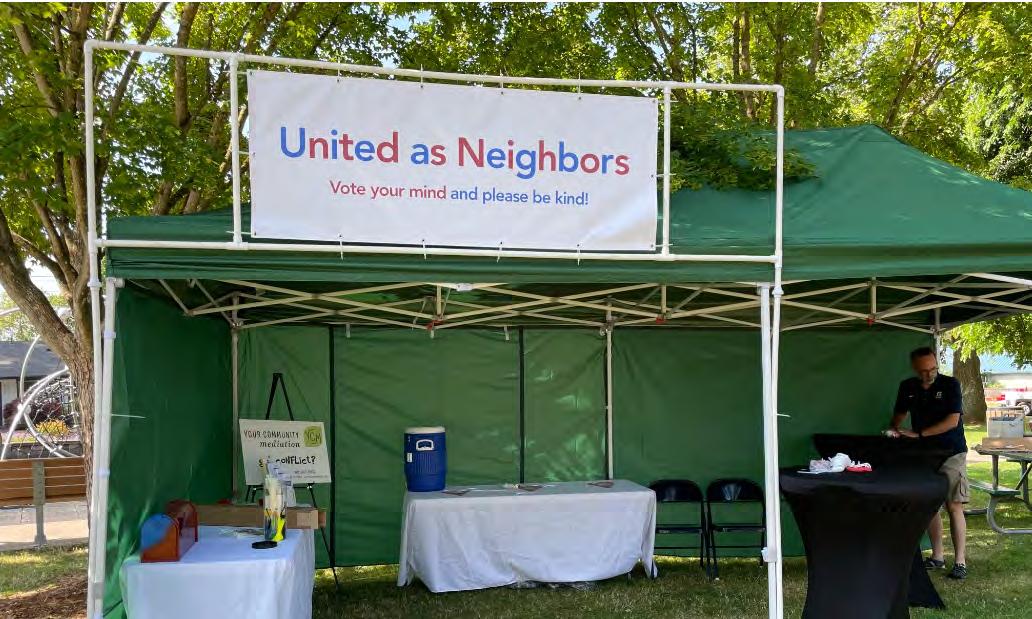
“The key thing is not to eliminate differences. We want to have differences because they are important for us. We need to be comfortable with differences and use them to build trust rather than undermine it.”
Professor Emeritus of Politics and Peace Studies, George Fox
The nonpartisan local group, United as Neighbors, was organized to work on repairing Newberg's strained political culture. The group set up a booth during the city's Old Fashioned Festival to gather input on a variety of political perspectives.
19 www.orcities.org Second Quarter 2023 | LOCAL FOCUS
ranging from quiet citizens to incumbents and challengers in recent elections.
Having established their credibility for safe conversations across the political division in Newberg, United as Neighbors hosted an informal get-acquainted event for all 10 candidates in this spring’s school board elections. The Newberg School Board has been in the news as a flashpoint for political conflict. Even so, all 10 candidates—incumbents and challengers—came to the event and gave it positive reviews.
The Civility Project co-hosted with two civic clubs a candidates’ forum for the school board races on April 15. Some of the candidates at first declined to participate, but reversed their decisions after the get-acquainted event. The forum, with all 10 candidates participating, drew an in-person crowd of more than 150 people, plus hundreds more via streaming and video recording. When working with municipal leaders, Mock emphasizes how to bring communities together to promote a healthy culture and integrate competing views to become a team. Ultimately, it results in a better way to build the decision-making process.
“Leaders must develop an insistence and an expectation that differences of opinion are not going to be expressed in ways that are belittling or demeaning, but are expressed in ways that contribute to conversation with everyone working from the same side of the table,” he said. “We should actually appreciate the differing opinions that people bring and embrace them.”
The Civility Project is exploring a range of other projects to accelerate the turn away from destructive politics. Mock is writing a book on stewardship of disagreement and political cultures. He has proposed to United as Neighbors an effort to develop constructive ways of shrinking the market for the kind of diatribe, misinformation and harassment which stokes polarization. He also is exploring the development of a civility inventory to help document growth in political leaders’ skills in making disagreement constructive.
Community Conversation Groups
United as Neighbors hosts monthly community conversation groups to help local citizens improve in their ability to communicate over difficult subjects.
Ground Rules:
• Listen to your words – Avoid truth claiming. Use “I believe…” statements to share a perspective.
• Instead of preparing a response to someone, think of a clarifying question to ask. Good questions to ask are, “How did you reach that conclusion?” or “What leads you to believe that?”
• Avoid assumptions and seek to validate each other’s perspective.
• Do not assign or assume the motives of other people.
• And always ask yourself, “Am I making it easier or harder for others to speak?”
More Information:
One of United as Neighbors' co-leaders, Jerrie Lyda, was interviewed as part of the Giving Town podcast. Jerrie covered the inception of Community Conversations, the steps towards uncivil behaviors, and how their work is attempting to interrupt those uncivil behaviors. Check out Jerrie’s podcast at: thegivingtown.buzzsprout.com
“We can do it whether they like it or not,” Mock said in a recent interview with the Newberg Graphic, adding he hopes the politicians “would welcome it as an opportunity for self-growth.”
Ms. Finnemore is a Portland-area freelance writer. Contact her at precisionpdx@comcast.net.
For almost 70 years, FFA has drawn inspiration from the history, culture and values of our clients to craft lasting building designs that tell the story of a community; where it has been, and where it is going.

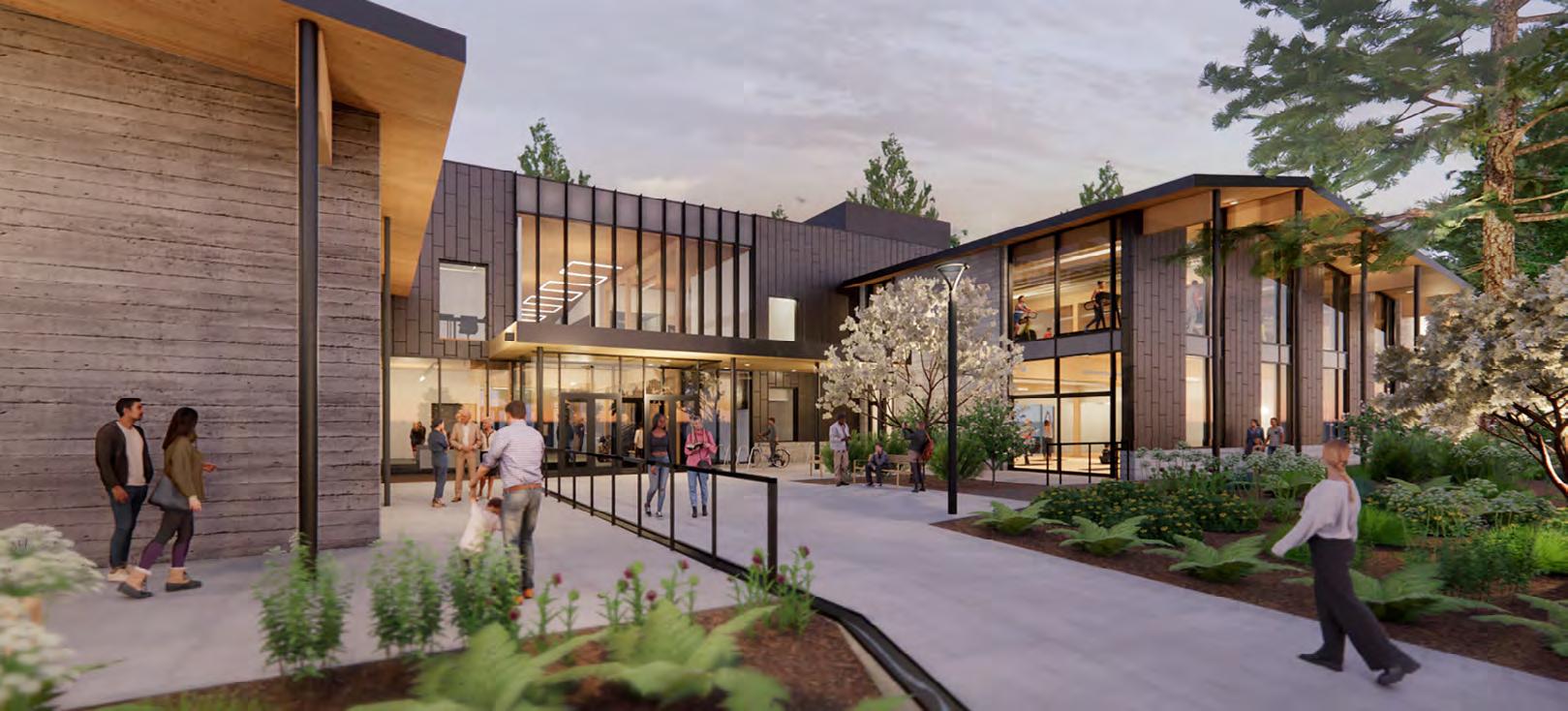
CITIES AND POLITICAL POLARIZATION
Find out how. www.ffadesign.com
20 | Second Quarter 2023 www.orcities.org
PP&R Mt. Scott Community Center Portland, OR
Bridging the Political Divide
Practicing Kindness, Patience and Self Control in Public Service
We’ve seen it locally during school board, city council, and county commission meetings, in state capitols, and in our U.S. House and Senate chambers: behavior and outbursts that disrupt and interrupt meetings and deliberations.
History shows that this has occurred throughout the years. But because it seems especially prevalent now, I’ve wondered: As elected officials, how do we respond, and how can we lessen its frequency?
We know from multiple reports, surveys, and studies that local leaders are the most trusted. We are accessible, available, and visible. This availability is even more critical now as many of our communities have lost a local newspaper or local broadcast media outlet. In the place of traditional journalism is a social media world where misinformation abounds, rumors spread quickly, and half-truths are given full credence. So, it’s critical that we as local elected officials take advantage of our trusted position to share timely and accurate information. We need to focus on facts and avoid the subjective emotional reply. (Mayor Lenahan of North Plains does an excellent job with this on her city’s Facebook page!) Remember too, we model with each other the civility that we expect from the public. When we are on the dais, engage with fellow elected officials on social media, interact publicly with a lack of civility, or show disrespect to another elected official, we give others the message that this is acceptable to us. Sometimes the hardest thing is the right thing: exhibiting self-control, putting our pride or ego aside and focusing on the topic and not the messenger, not taking things personally and listening to understand…not just to reply or argue. If you have the time or opportunity, watch other cities’ council meetings online or on YouTube. Observe the patient responses, interactions, and decorum. I have gained valuable insight by watching the good (and bad!) examples of others.
In Hillsboro, one of our local churches has an initiative called “Resolution Kindness,” which began with the belief that kindness can change the world. Taking the time for five simple actions (smile, listen, encourage, help, say thank you) can make a profound difference. There are several groups that begin their meetings with orally repeating the Kindness Resolution actions and agree that these actions will be visibly present during their interactions with each
other—and it has made a difference!
Years ago, when I joined the Hillsboro City Council, I asked an older, more seasoned colleague if he had any advice. He said, “Remember this. You have influence, you don’t have power. And the moment you act like you have power you will lose your influence.”
Steve Callaway LOC President; Mayor, Hillsboro

So, remember to use kindness, goodness, patience, and self-control in our responses and leadership so that we might influence the actions and reactions of those we serve and serve with.
Answering the needs of our members is in our DNA. Our commitment to prevention and connected care is helping our patients feel their best — in mind, body, and spirit.
Kaiser Permanente is proud to support the League of Oregon Cities’ mission of serving Oregonians and building vibrant communities.
441172462_ADV_03-23 All plans offered and underwritten by Kaiser Foundation Health Plan of the Northwest. 500 NE Multnomah St., Suite 100, Portland, OR 97232. ©2023 Kaiser Foundation Health Plan of the Northwest
SUPPORTING ALL THAT IS YOU 21 www.orcities.org Second Quarter 2023 | LOCAL FOCUS
Local Leaders Address Public Civility, Miscommunication
In order to ensure that public meetings are conducted with civility and citizens truly feel they have been heard, regardless of their opinion, many city councils and other governing bodies have discussed the issue internally and are working to inform local community members about how to communicate more effectively in a public forum.

They also are educating their communities about how to identify and combat misinformation, often leading residents to police themselves online and prevent it from spreading. A few local leaders from across the state shared with Local Focus how they are working to accomplish these goals so that public meetings are as productive—and respectful—as they should be.
How does your council maintain civility and productivity during these politically polarizing times?
Oregon Mayors Association President and North Plains Mayor Teri Lenahan
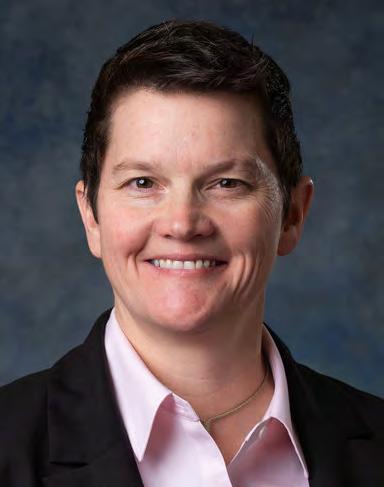
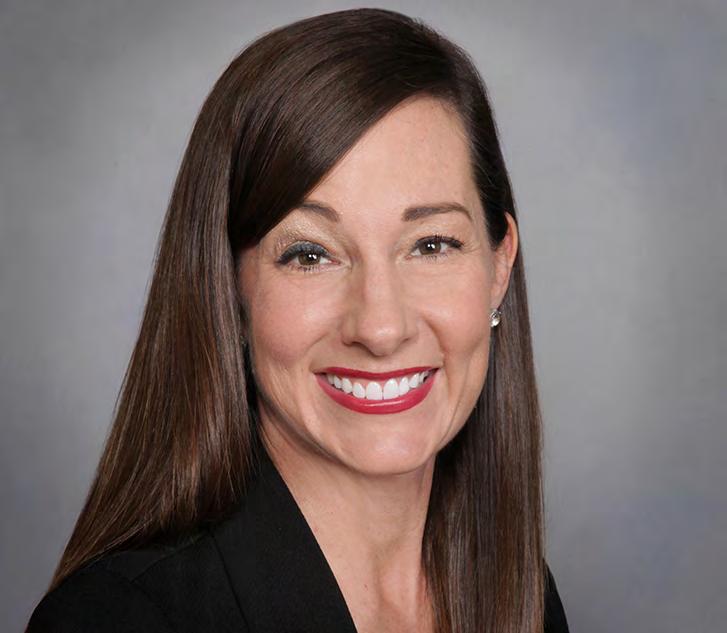
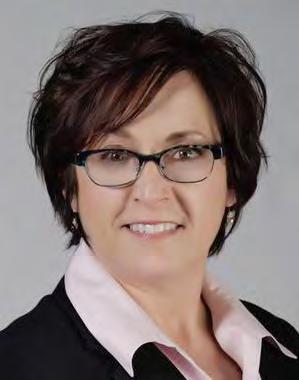
“When we are in the chamber, I set the tone by addressing everyone in a respectful way by using their titles, for example, Council President or Councilor. Maintaining civility and productivity during polarizing times requires a commitment to respectful communication, focusing on the goals of the council and the willingness to listen to all viewpoints, even if the viewpoint isn’t something one subscribes to.
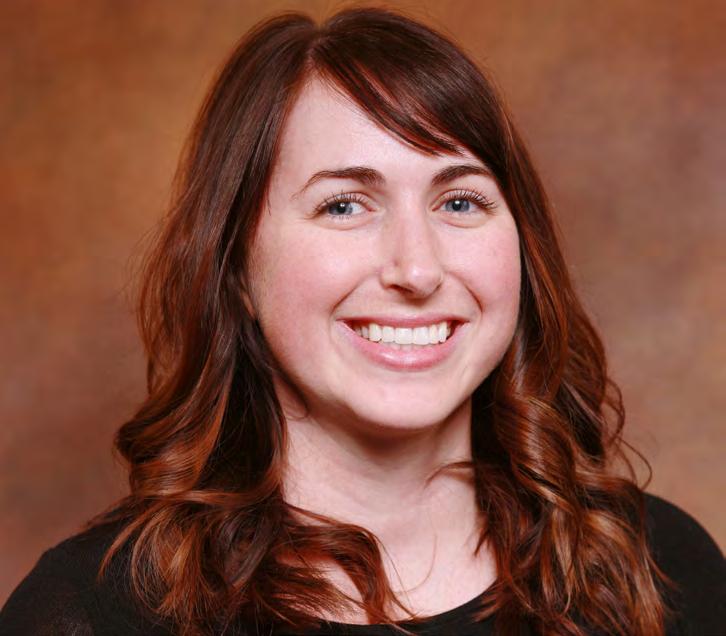

“I expect my council to hold each other accountable to our commitment to the community and not our individual political viewpoints. We follow council rules for decorum, councilors are expected to provide feedback and we agree to disagree. When members of the public share their thoughts and/or complaints at a council meeting, they are given a set time to speak during public comment and I set the expectation that staff will follow up with them. I will even ask them to reach out to me personally if they do not hear back from staff.”

Bridging the Political Divide
North Plains Mayor Teri Lenahan
North Bend Mayor Jessica Engelke
Happy Valley Council President David Emami
Pendleton Councilor McKennon McDonald
22 | Second Quarter 2023 www.orcities.org
Gresham Mayor Travis Stovall Seaside Councilor Tita Montero Hillsboro Councilor Beach Pace
Gresham Mayor Travis Stovall
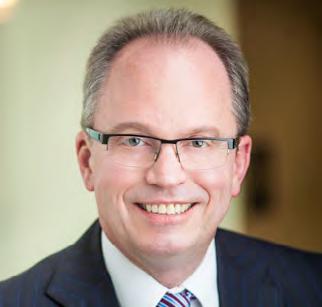
“We have tried our best to speak to the public as one united voice, with a focus on getting the whole story or full picture before we talk about sensitive or polarizing topics. It can be difficult to balance timeliness and accuracy but, in our opinion, it ’s better to be accurate than first.”

Seaside Councilor Tita Montero
“I don’t necessarily equate civility with productivity unless behavior becomes obstructive.
“One piece of advice is that every council should develop a set of norms or rules of expected behavior of both council and public at council meetings. It should be shared publicly. Then it needs to be adhered to, which can be the hardest part.”
Happy
Valley Council President David Emami
“We all respect the fact that each of us was elected by our residents and we all bring something different to the table. There is a mutual respect we share for one another, and it’s reflected in how we speak to each other and also how we approach the diverse topics that come before us at every meeting.
“Also, although we may have differing opinions at times, we are all moving in the same direction towards our common goals. Each of us has the ability to set our egos aside and we always put the city first. We realize that we are representing our city whether we are at city hall or going for a walk in the park, and we take that responsibility very seriously.”
North Bend Mayor Jessica Engelke
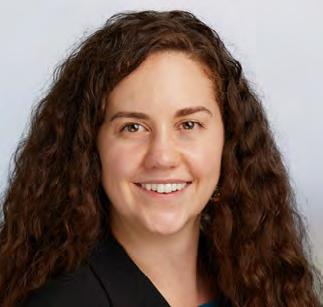

“Now and always, it’s important for the council and the city to have very clear rules in their charter about how we should communicate with each other and with the public. I believe in public comments and people having a voice.
“I read a short phrase at the start of each meeting: ‘Thank you for participating in public comment this evening. The public comment period is an essential part of local government meetings. Each person has three minutes to speak. Our governing body takes the input into consideration. However, in observance of Oregon open meeting laws, this isn’t the time for dialogue, but rather a time for us to listen to you. Our city administrator and city recorder are taking notes of action, if needed.’”
Hillsboro Councilor Beach Pace
“I don’t actively recruit people who think like me. I actively recruit people from diverse backgrounds who are reasonable. Accessibility is key.”
Pendleton Councilor McKennon McDonald


“I am thankful to work with a team of city officials who are all focused on our city goals and priorities while maintaining a healthy mixture of conversation and disagreement. We have an environment where it is okay to voice that you do not agree with something and share your rationale without fear of retaliation or being singled out.
(continued on page 24)
Committed to serving the legal
of Oregon cities

Miller Nash has extensive experience in the combined fields of government law, real estate, construction, land use, employment, and employee benefits. We are a client-focused firm with fresh ideas and strong traditions of service.
needs
Jeff Condit Craig Ashford
MILLERNASH.COM 503.224.5858 Alaska | California | Oregon | Washington
Christi Taylor James Walker
23 www.orcities.org Second Quarter 2023 | LOCAL FOCUS
Souvanny Miller
“We really focus on the issue and try to identify possible solutions, taking the politics out of it as much as possible. When the council makes a decision, the team moves forward as a unified front within the community to share how the decisions being made impact our citizens.”
What advice can you share with other local leaders about how to combat misinformation in their communities?

Mayor Lenahan
“Building trust and confidence in my community has always been a priority for me and when misinformation shows up on social media sites within my community, many folks in town know me well enough to either tag me for a reply or call me to give me a heads up about what is being said.
“Do not ignore misinformation. It is critical to have a plan in place with your council and city administrator when it occurs. Misinformation needs to be addressed immediately and directly. Responding to misinformation on social media needs to be clear and concise and, oftentimes, I will counsel with other leaders before replying to misinformation to make sure I have my facts right.
“I prefer to provide context or historical information to help residents in my community understand why a decision was made the
way it was, and I welcome folks to reach out to me for follow-up questions and comments. Misinformation typically arises when people do not have all the information they need to understand a situation. That is why it is important to have clear communication, use trusted sources at all times and encourage feedback from your community. I think cities should be transparent and out in front with the facts at all times.”
Mayor Stovall
“People need to hear the truth, so give it gracefully and clearly. The number one way to combat misinformation is to be a trusted voice that speaks clearly. Trust is built over time, but it starts with being honest.”
Councilor Montero
“There was a workshop at the LOC’s spring conference that covered this rather well. Many ideas from various cities. I would defer to that.”
Mayor Engelke
“We use multiple tools to get information out, and we use social media only as a bulletin board. We share as much information as possible on our website, we go to service clubs and I introduce myself to people who are attending a council meeting for their first time.
As a leader in the energy services industry, we have built long-term relationships with several Oregon cities – such as Bend, Redmond, and Medford – to save energy dollars, generate clean energy, and achieve carbon reduction goals. Call Ameresco today to learn about resilient & renewable solutions for your community.

LOCAL LEADERS ADDRESS PUBLIC CIVILITY
Today’s Savings Fund a Brighter Tomorrow ©2022
503-290-1293 ameresco.com 24 | Second Quarter 2023 www.orcities.org
Ameresco, Inc. Ameresco and the Ameresco logo, the orb symbol and the tagline “Green. Clean. Sustainable.” are registered in the U.S. Patent and Trademark Office. All rights reserved.
“It is difficult to respond to every piece of misinformation you hear and it can be overwhelming sometimes because there is so much of it out there. I encourage people to come to the source if they have questions or concerns. I have times when I’ve told someone, ‘Why didn’t you just call me? I could have answered that question in one minute.’
“We also try to frontload people with misinformation. Most regular citizens don’t understand how grants work, and one of the biggest pieces of misinformation is when we have tourism dollars from grant money to buy hanging baskets for our downtown during springtime. People get upset about why that money isn’t being used for the homeless, schools or other community needs. So, to frontload, we say, ‘Look at these lovely flower baskets that we bought with tourism money!’”
Councilor Pace
“We have worked hard to combat misinformation by getting multiple modes of information out. These include social media, our website and mailers. The mailers are for older people or people who may not have access to technology. We have a newsletter that goes to every single home in Hillsboro, which is expensive but we do it. You don’t even have to subscribe or anything, and we also have it in Spanish.
“We also have a DEI officer who makes sure our messaging is correct. We’ve added native Spanish speakers to our communications team. If people need other translation, they can call the city council and request a translator. We try to look at how we communicate from many different standpoints.
“Because of these measures, we’ve noticed changes on social media especially, where people have begun to police themselves. That’s nothing that we’re doing except putting out great information. Also, through great training by the LOC and Emerge Oregon, city councilors have learned about message discipline. We post explanations, but don’t respond to insults. Mayor Calloway does great coaching that is behind the scenes, and he’ll ask things like, ‘What do you hope to gain from this question?’”
Councilor McDonald
“Our community recently invested in a communications specialist to help with both proactive and reactive communications. We are fact-focused and want to share the information in a way that will be easily digestible to the constituent taking it in.
“The council identified the goal of improving communication between the community and the City Council/Mayor’s Office/ City of Pendleton as one of our top four goals for the year. Internal and external communications are addressed within the scope of work for this staff member and they are working with an internal team on implementation.
“Many strides have been made in this area, but there will always be room for improvement. I believe it is our responsibility to continue making adjustments and learning from situations we face so we know what we can do better next time.”
Connecting
capital
When government and education clients need to finance important projects, they turn to a national leader. With our local expertise and distribution strength, we’ll help your community meet its financing needs.
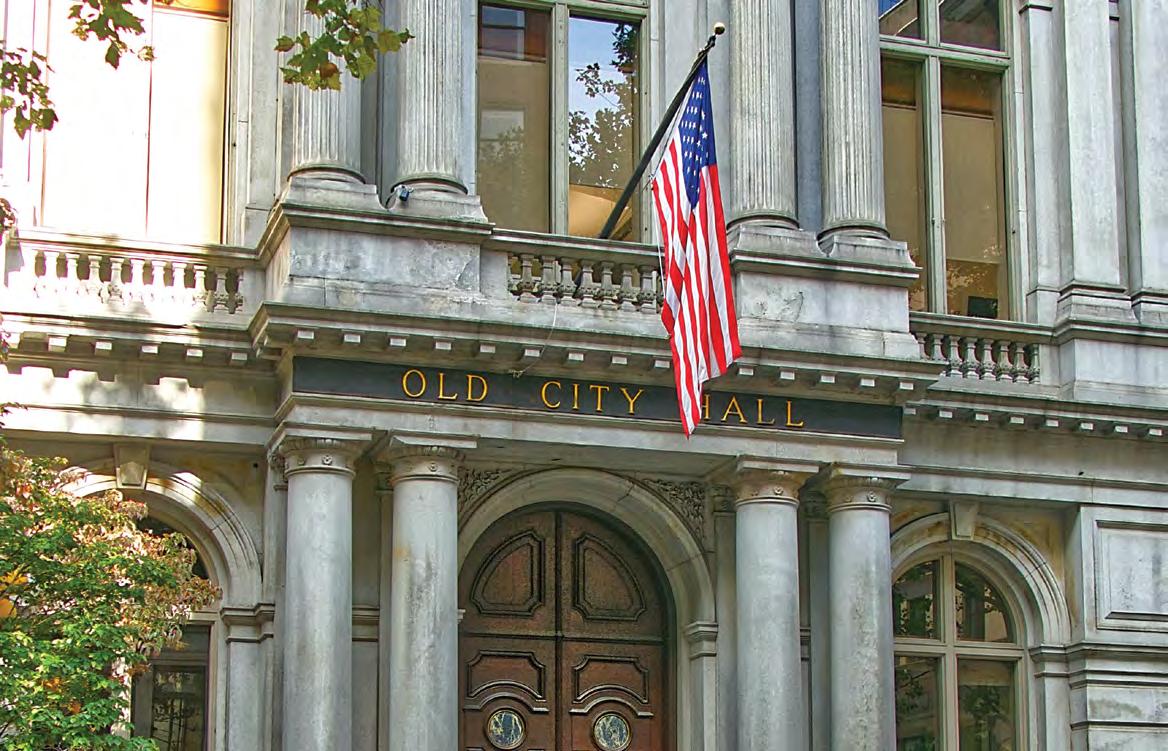
• Bond Underwriting
• Financial Advising
• PERS Expertise
• Local Option Projections
to
since
• Levy Rate Analysis Since 1895. Member SIPC and NYSE. ©2023 Piper Sandler & Co. CM-23-0364 4/23 PIPERSANDLER.COM 25 www.orcities.org Second Quarter 2023 | LOCAL FOCUS
communities
1895
Bridging the Political Divide
Tools for Fighting Misinformation

With the decline in local news outlets across the country, more Americans have turned to the internet and social media to fill the vacuum of information. Unfortunately, these fragmented media sources have led to a crisis of misinformation.
“People really trust local news more than national news to be more accurate and report on things that are important to their lives,” said Elizabeth Schroeder, an associate professor of economics in the School of Public Policy at Oregon State University. Schroeder recently led a Councilors Workshop titled “Combating Misinformation in the Era of Polarization” during the LOC’s Spring Conference. Her discussion focused on the challenges facing elected officials in the current environment, and the best tools for fighting misinformation, communicating effectively through all the noise and maintaining public trust.
She noted that social media and other online sources often confirm a person’s own beliefs and political leanings. This can lead to people getting stuck in echo chambers and create an environment that is ripe for the spread of misinformation. Her advice for city and county leaders to combat misinformation: Repeat the truth as often as possible.
“One of the problems with misinformation, and specifically with social media, is that when people hear things over and over again, they tend to believe that it’s true. So, it’s important to repeat the truth as much as possible,” Schroeder said.
Local Leaders are Trusted Sources
Local leaders are in a strong position to serve as a trusted source, and can make the most of that role by being active and consistent communicators of accurate information. “If you’re the first one people hear about something from, the first time tends to stick, and people know you are a reliable source of information they can count on,” she said.
Many cities and counties have established websites that nearly fill the role of a local news organization. They provide information about events that are happening in the community and what issues are being discussed during public meetings. Some even have a page that addresses rumors that are circulating in the community and provides facts to dispel the rumors.
For those cities and counties that don’t have the budget for a website, a newsletter and group emails can be used to regularly update the community about local happenings, Schroeder suggested. “It’s important to make these resources available for city council members and other local leaders so they can quickly share factually accurate information,” she added.
Schroeder pointed to the importance of “pre-bunking” and inoculating people against misinformation. This involves building people’s resilience to misinformation by educating them about
how to recognize it when they see it and determine the credibility of information before they share it with others.
As an example of pre-bunking, an online “fake news” game called Bad News can build psychological resistance against common online misinformation strategies across different cultures, according to a recent study by Harvard University.
“We conclude that social impact games rooted in basic insights from social psychology can boost immunity against misinformation across a variety of cultural, linguistic and political settings,” the study’s authors stated.
Building Resilience Through Education
Part of pre-bunking is educating people that social media platforms want to keep them engaged as long as possible so they can keep showing ads, which is how they make a profit. The platforms use algorithms that target users and generate posts that elicit anger and outrage to keep people engaged longer, Schroeder explained.
“Misinformation gets shared much more often and spreads much more quickly, and fake news is more likely to be retweeted than true news,” she said. “It’s very important for everyone, if they see
26 | Second Quarter 2023 www.orcities.org
something online, to check it against other sources before rage tweeting it, and just to be aware that that’s what’s happening to you when you’re online.”
If municipal leaders must debunk misinformation, an effective tool is the “truth sandwich.” The strategy is to begin with a statement of the truth and to warn people that misinformation is surfacing, and then repeat the misinformation at most once, as concisely as possible.
“It’s important to try to point out why it is false and what logical fallacy may have led people to believe it, and then complete the sandwich by repeating the truth again so that’s the last thing they hear,” Schroeder said.
Another dynamic to be aware of is that many people share things on social media because it connects them to other people and when they post or interact, it reinforces their social identity. It is essential that elected officials refrain from further polarizing their
79% of Americans trust local news more than national news sources to give them information they can use in daily life.1

2 Oregon counties have no local newspaper, 20 have only a weekly newspaper.2
Circulation has decreased more than 40% since 2004 and cuts continue.2
86% of U.S. adults get news from a smartphone, computer or tablet “often” or “sometimes.”3
1. Gallup. (2019). State of Public Trust in Local News https://knightfoundation.org/ reports/state-of-public-trust-in-local-news
2. Abernathy, P.A. Center for Innovation and Sustainability in Local Media, University of North Carolina at Chapel Hill.https://www.usnewsdeserts.com

3. www.pewresearch.org/fact-tank/2021/01/12/more-than-eight-in-ten-americans-getnews-from-digital-devices
community by attacking people for falling for misinformation or stigmatizing groups for having certain beliefs.
“It’s important to debunk the idea and not the person,” she said, adding that collaboration with leaders of those communities can help strengthen the debunking process.
MPA Local Government Administration
Specialization: A career path for city management, county administration, special district management, and other positions serving communities.
For more information contact: publicad@pdx.edu
https://www.pdx.edu/public-administration/
Master of Public
Ranked #17 in Local Government Management Application open now!! PSU’s
Administration
27 www.orcities.org Second Quarter 2023 | LOCAL FOCUS
the Political Divide
What Limitations Can Cities Place on Public Comment in a Public Forum?
After more than three decades as an attorney with private law firms and as city attorney in Seattle and Boulder, Colo., Tom Carr has seen firsthand how Americans have become more polarized and how that is increasingly expressed in public meetings.
“School board meetings are especially volatile because people are passionate about education and board members tend to be volunteers,” he said.
He describes the limitations cities and counties can place on public comment in a public forum as a “nearly unwinnable challenge.”
“Everybody on the U.S. Supreme Court seems to agree that cities are usually wrong when it comes to the First Amendment,” said Carr, who was appointed Washington County Counsel in June 2021. “In my experience, political polarization is getting worse and presenting more challenges for elected officials and those who support them.”
His advice for city and county leaders is that, to avoid lawsuits for violating First Amendment rights during public meetings, it’s best to focus on restricting disruptive behaviors rather than speech.
As an example, some municipal governments have rules preventing attendees of public meetings from criticizing councilors and commissioners, but those rules most likely violate the First Amendment.
“You can stop someone from disrupting a meeting if they are truly being disruptive, but you have to tolerate a certain level of disrespect,” Carr said. “It’s safer ground if you focus on behavior and actual disruption.”
Another piece of advice is to establish rules and then apply them consistently and fairly. For instance, if municipal leaders allow three minutes for people to comment, that three-minute cut off needs to apply to everyone or be extended for everyone.
Reliable Water Supplies Grow Communities
Our team has helped many communities plan for their water futures, obtain water rights, and defend them in court. As long-time counsel to the League of Oregon Cities, we helped write the legislation allowing cities to secure long-term supplies. Let’s talk water!

Bridging
Anchorage | Bellevue | Los Angeles | New York Portland | San Francisco | Seattle | Washington, D.C. DWT.COM Olivier Jamin ASSOCIATE | Portland 503.778.5346 | olivierjamin@dwt.com 28 | Second Quarter 2023 www.orcities.org
“It’s really easy to continue to allow the Girl Scout to talk about the cookie sale, but then cut off the person who criticizes the mayor,” he said, adding consistency in applying rules is essential. “Zoom was great because you could cut everybody off at the time limit, but it’s more difficult to tell someone to stop talking to their face.”
Content-based rules allow city leaders to define public comment as matters specific to the meeting or to government operations. However, that definition should not be broadened to include viewpoint-based content such as criticism of government officials or policies.



Other issues that arise during public meetings include people siting in the aisles. Many jurisdictions prevent that through fire and safety regulations. Signs held by members of the public during meetings also present challenges. City officials can restrict the size of signs so they don’t block other attendees’ view of the proceedings, or the rule can say that no signs are allowed at all.
“Some signs may be obnoxious or obscene,” Carr noted. “You can say that signs aren’t allowed at all, but you can’t demand that signs be respectful.”
Obscenity also is a concern with people participating in meetings via Zoom or other virtual platforms, because city officials cannot control what may appear on participants’ cameras. Some jurisdictions have stipulated that cameras cannot be used.
“A lot of community members want to be seen and they want to do presentations. I advise against allowing presentations, but
people are so used to talking while using PowerPoint, so there can be pressure on the elected leaders to allow them,” Carr said.
“The challenge is that if a government allows video presentations, there is a risk that someone will present materials that some may say is obscene, but then you have city officials deciding what is obscene.”

Clapping raises a debate as well. Some jurisdictions have implemented rules against clapping and booing during public meetings to make people feel more welcome, asking instead that participants raise their hands to show support.
“I’m not sure that is constitutional. Removing someone for clapping is risky and it could lead to a lawsuit,” Carr said.
While there is plenty of debate about what does and does not violate people’s First Amendment rights in public meetings, Carr is certain about one thing: “Presiding officers need to have a lot of patience.”
In addition to advising cities and counties about how to legally manage public meetings without violating citizens’ First Amendments rights, Carr frequently speaks and writes about the issue. He coauthored an article titled “Disruptive Public Meetings and the First Amendment” in the May/June 2022 edition of the IMLA’s Municipal Lawyer journal.

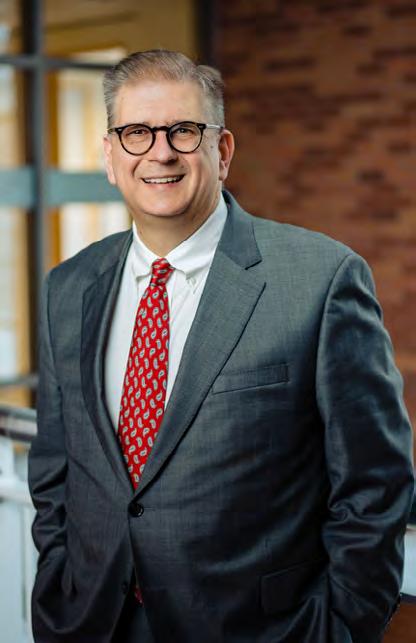
www.fcsgroup.com | 503.841.6543 Utility Rate and Fee Consulting | Utility Management | General Government Financial Analysis | Economic and Funding Strategies Analysis Celebrating 35 years of helping Oregon cities achieve financial and economic success. CELEBRATING YEARS OF CLIENT SOLUTIONS 35 29 www.orcities.org Second Quarter 2023 | LOCAL FOCUS
Excluding and Evicting Residents from Public Facilities

Is it Ever Right?
By Kirk Mylander
Is it ever acceptable for a city official to have someone removed from a place that is open to the public?
While there are right and wrong ways to legally exclude a resident, there is also the issue of public perception. Reviewing the following scenarios and the suggested action steps will help your city to be prepared and proactive in working first to avoid issuing an exclusion, and then if necessary, doing it the legal way.
Scenario #1: “Fred’s Snorting”
Fred, who owns multiple properties in town, is concerned that a potential zoning change adjacent to one of his lots will diminish his property values. Fred starts attending every city council meeting. While Fred sits in the back and does not say anything during the public comment periods, he often sighs loudly, rolls his eyes, shakes his head, makes indignant snorting sounds, and
mumbles unintelligible words under his breath. Fred engages in this type of behavior most frequently when the city manager or mayor are speaking. Before the next city council meeting, which is expected to go long, the mayor informs the councilors that he is worried that Fred’s “disruptions” will drag out the meeting, and that he is actually becoming fearful that Fred, who is a wellknown hunting enthusiast, may even become violent. The mayor then asks the police chief to talk to Fred, and, “See if he’ll voluntarily skip this one. I don’t want to deal with having to trespass him if he gets disruptive again.” The police chief then waves Fred out of the council chamber and into the lobby area and asks Fred to skip the meeting. “If you don’t, I’m going to have to arrest you for trespassing.” Fred rolls his eyes, goes back in to grab his coat, and tells a friend, “They’re trespassing me from the meeting.” Fred peaceably leaves the building. Two months later Fred files a lawsuit against the city for violating his constitutional rights.
Bridging
30 | Second Quarter 2023 www.orcities.org
the Political Divide
Suggested Approach: Although the mayor honestly felt threatened by Fred, and the city manager believed that Fred’s sighs and snorts were disruptive, neither perception was enough to legally bar Fred from the city council meeting. A city official is not entitled to prevent an individual from attending a city council meeting that is open to the public unless the person disturbs the meeting. (White v. City of Norwalk, 900 F.2d 1421 (9th Cir. 1990)
The U.S. Supreme Court has explained that “in our system, undifferentiated fear or apprehension of disturbance is not enough to overcome the right to freedom of expression.” (Tinker v. Des Moines Indep. Cmty. Sch. Dist., 393 U.S. 503, 508 (1969))
There is a difference between someone who distracts attention from the councilor who is speaking at the front of the room with a sigh or snicker, and someone who stands up and interrupts the speaker, effectively halting the meeting by insisting on speaking out of turn. Ninth Circuit case law has embraced the principle that “[e]ven in a limited public forum like a city council meeting, the First Amendment tightly constrains the government’s power; speakers may be removed only if they are actually disruptive.” (Norse v. City of Santa Cruz, 629 F.3d 966, 979 (9th Cir. 2010) (Kozinski, J., concurring), cert denied, 2011 WL 4530331 (Oct. 3, 2011)) The law draws a distinction between a person who is a distracting nuisance, and someone who interrupts the official speaker. See also Norwalk, 900 F.2d at 1426 (ordinance is not facially overbroad so long as it only permits city council officials to eject a person who disturbs or impedes the meeting).
The California city of Costa Mesa took their municipal code too far when trying to enforce civility at council meetings. The

city passed an ordinance that made it a misdemeanor for members of the public to engage in “disorderly, insolent, or disruptive behavior.” Acosta v. City of Costa Mesa, 718 F.3d 800, 806 (9th Cir. 2013). The ordinance went on to state that “No person shall make any personal, impertinent, profane, insolent, or slanderous remarks.” The Ninth Circuit Court of Appeals ruled that the city’s ordinance was unconstitutional on its face because it allowed the presiding officer to eject an attendee for something less than “actually disturbing or impeding a meeting” Id. at 811. The court concluded by stating that “a municipality cannot merely define disturbance in any way [it] choose[s], e.g., it may not deem any violation of its rules of decorum to be a disturbance.” Id. (citations omitted).
In the above scenario, the city loses the lawsuit because, in part, there was no actual disturbance. The police chief asked Fred to leave before the meeting even started. Fred’s history of shaking his head and making disapproving facial expressions do not show that Fred actually interrupted a meeting. Council members’ honest belief that Fred would become disruptive if he were allowed to stay is not an actual disruption, and thus cannot support legally removing Fred from the meeting. See Tinker, 393 U.S. at 508; Norse, 629 F.3d at 976.
Further, the mayor and police chief sought to get Fred to agree to leave before giving Fred “fair warning” that a second actual disruption would result in the city excluding Fred from the meeting. This is what the city’s policy stated would happen, but no one stopped to consult the policy in the moments before the meeting was to start. Fred’s lawyer, however, quoted the city’s policy at length in Fred’s lawsuit.
(continued on page 32)
Here for cities in Oregon for more than 40 years Understanding Your Needs Focused on Your Wants O r g a n i z a t i o n a l A s s e s s m e n t s A u d i t / B u d g e t A s s i s t a n c e Cost Studies 503 723 0300 www merina com 7624 SW Mohawk Street, Tualatin, OR 97062
31 www.orcities.org Second Quarter 2023 | LOCAL FOCUS
The mayor and city manager should not have used the city’s police power, via the police chief, to pressure Fred to leave the meeting before it started because they perceived that Fred was likely to be distracting or embarrassing. Excluding a citizen from a meeting requires that the citizen actually interfere and disrupt the meeting. Merely being a distraction is not enough. Absent threats of violence, a citizen should be given a warning that further distractions will result in their removal. And while it’s good to have a policy outlining what types of behavior will lead to having a citizen removed from a council meeting, the citizens and the councilors must follow the policy.
Finally, keep in mind that this scenario only addressed excluding Fred from a single meeting. If the city wished to exclude Fred from multiple future meetings then the city would need to provide Fred with due process and an ability to appeal the decision to trespass him. Before taking such actions, be sure to consult with your city attorney.
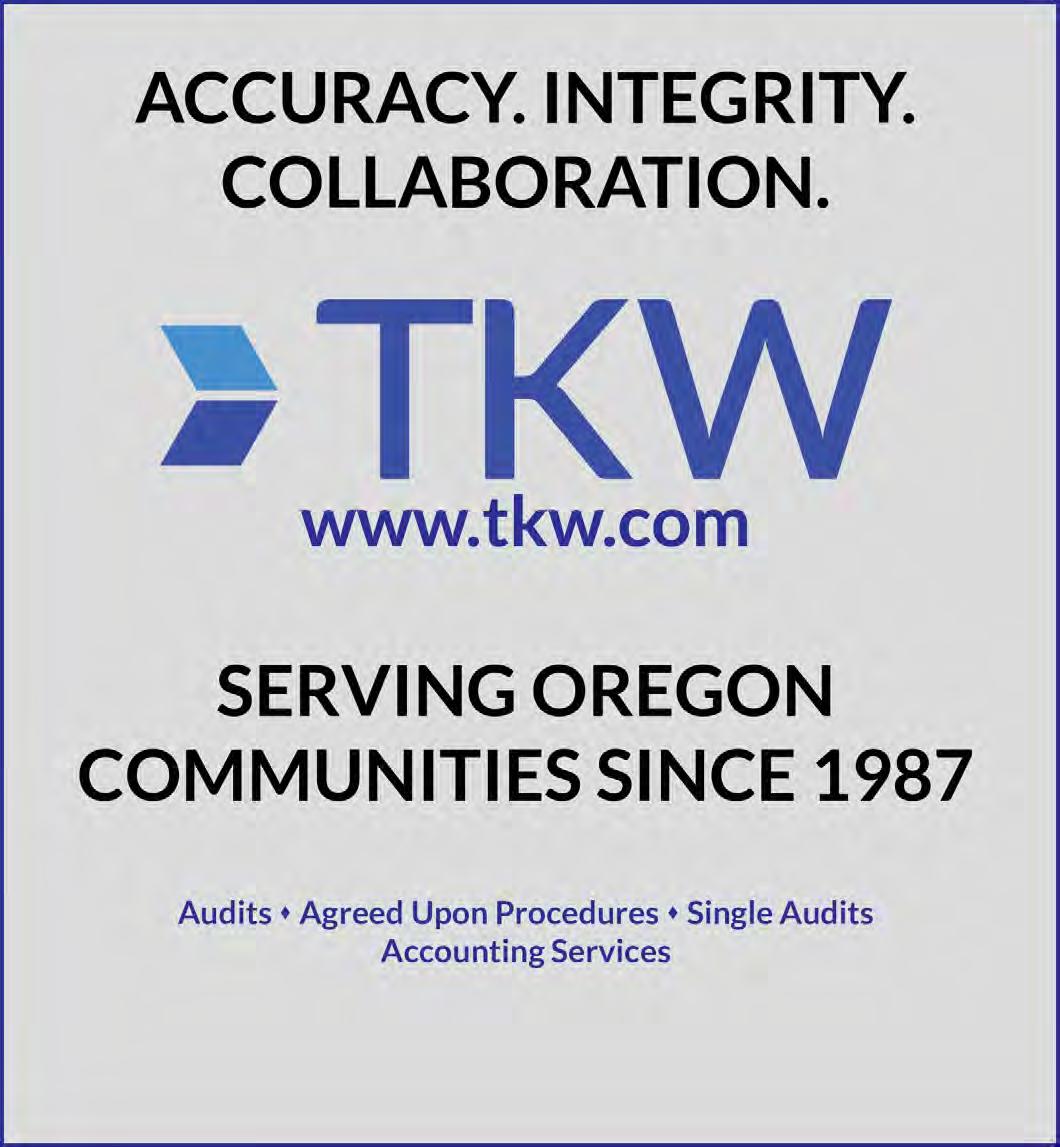
Scenario #2: “Library Love Notes”
A resident proclaims his romantic desire for a member of the library staff. Although his advances are unwanted, and the employee has made this known, the resident regularly follows the employee around and routinely sends love notes. The resident is polite but persistent. The behavior does not rise to the level where the employee could get a protective order from a court. However, the behavior does violate the city’s policy on harassment. The library director wants to exclude the resident from the library.
Suggested Approach: Violating the city’s policy on harassment is reason enough for a department head to speak directly to the patron. The patron should be told that their behavior is interfering with the employee’s ability to perform her job. The department head should explain to the patron that he can use the library to check out reading material, but cannot leave notes or gifts for any employee, nor follow any employees around the library. Finally, the patron should be given a final warning: any further gifts, following employees or behavior that is in any way threatening will result in being trespassed from the library. In addition to verbally warning the patron, the patron should be handed a written letter which makes the same points in writing. A copy should be kept for the city’s own file.
If the patron’s behavior continues, it is important to narrowly tailor any trespass of the patron. For instance, do not trespass the patron from all city property for all time. Such an order would be overbroad.
Assuming the patron’s behavior is directed toward only one library employee, the city could protect the employee by trespassing the patron from only the library, and only during the hours the harassed employee usually works. And, provisions can be made to allow the patron to continue checking out material. He can be allowed to call ahead, come straight to the counter, check out a book that has been pre-retrieved, and then immediately leave. Even if it’s known that the patron will never utilize this procedure, putting this in writing at the time the patron is trespassed will strengthen the city’s legal position if the patron eventually gets tired of the trespass order and seeks to file a suit in court.
Scenario #3: “No Beverages Please”
Another library patron, this time an avid computer user, consistently disregards the “no food or beverage” rule in the library’s computer lab. One day while using the computer lab, the patron spills coffee on a keyboard, ruining it. The library director wants to exclude the patron from the library for a period of 30 days as punishment for breaking the rule.
Suggested Approach: Was the patron given a final written warning that she would be trespassed from the lab if she continued bringing in beverages? If so, then the library director must be reminded that the city needs to keep any exclusion of a citizen as narrowly tailored as possible. In this example, asking the resident to pay for the keyboard may be a better incentive to change her behavior than excluding her from the entire library for 30 days. If the patron refuses to pay for the keyboard, then the city should exclude her from only the computer lab for 30 days. After 30 days, if the patron reoffends, she should be excluded from the computer lab for an extended period of time (90-180 days), but not from the library entirely. If she is excluded for an extended period of time, the library director needs to work with the city attorney to offer the patron due process and a way to appeal the decision to trespass her.
Scenario #4: “Unfair Termination”
A previously terminated city employee comes into city hall and waits for the city manager to walk out of his office. When the city manager leaves his office and enters the hallway, the former employee approaches the city manager and launches into a tirade about how his termination was unfair. The former employee does not make any threats, but is loud and disruptive. After this occurs on two separate days, the city manager wants to have the former employee banned from city hall.
Suggested Approach: This former employee wants to be heard, and does not believe the city is listening. City officials should
EVICTING RESIDENTS FROM PUBLIC FACILITIES 32 | Second Quarter 2023 www.orcities.org
start by offering to meet with the former employee and provide him with an exit interview. It’s important to make sure two people from the city are present. This offer should be in writing to the former employee, even if he will likely turn down the offer.
If the employee comes back again, the city’s representative should tell him (again, verbally and in writing) that he has disrupted city business and must now leave. It must be specifically stated that if he disrupts city business again, he will be trespassed. However, the city should be sure to state that he is welcome to come back and speak his mind when he has an appointment. If the ex-employee still will not leave, the city should then have the police remove him from the premises. City officials should also make sure that at this same time the city is still offering to set up a specific time to meet with the ex-employee and hear him out.
After the employee has been removed once, if he refuses to set up an appointment but still returns looking for the city manager, then the city can prove that the person does not just want to be heard, but is intent on causing disruption as a type of retaliation. In this case, the city should exclude the ex-employee from the portion of city hall where the city manager’s office is located, but not from the entire building (if this is feasible). Again, the principle is to protect city personnel in a way that is the least restrictive possible to the citizen’s rights. Cities should make sure to work with their city attorney to document that you have offered the citizen due process before any decision to trespass the ex-employee is finalized.
Conclusion
Disruptive citizens can frustrate staff and interfere with your ability to provide services to the public. The following action steps will help your city to issue an exclusion in a legal and defensible way:

1. A person cannot be excluded from a meeting or public place because the individual is a distraction—sighing and snorting loudly like Fred in the example above.
2. In order to legally exclude someone from a council session, that person must actually interrupt the meeting and interfere with the progress of the official agenda. For example, if Fred had stood up and tried to shout down the mayor.
3. Absent threats of violence, a citizen should be given a warning that further distractions will result in their removal, whether the person will be removed from a council meeting, the library or city offices. Issue the warning verbally and, if at all possible, in writing as well.
4. If your city wants to exclude a disruptive citizen from multiple meetings, or exclude a person from a specific city facility for an extended period of time, make sure the exclusion is narrowly tailored to fit the situation. Utilize the option that is the least restrictive of the citizen’s rights. For instance, excluding a person from the library computer lab but not the entire library.
5. If an exclusion will be issued for longer than a single event, such as excluding someone from all council meetings for 60 days, then the city will need to provide the citizen with due process and an ability to appeal the exclusion decision.
6. Before issuing any extended exclusion, be sure to consult with your city attorney.
Mr. Mylander is general counsel for CIS.
NLC Report: On the Frontlines of Today’s Cities
The National League of Cities (NLC) report “On the Frontlines of Today’s Cities: Trauma, Challenges, and Solutions” found that 81% of local officials have reported personally experiencing cases of harassment, threats, and violence while 87% said that the levels of harassment, threats, and violence have increased in recent times, particularly since the start of the pandemic.
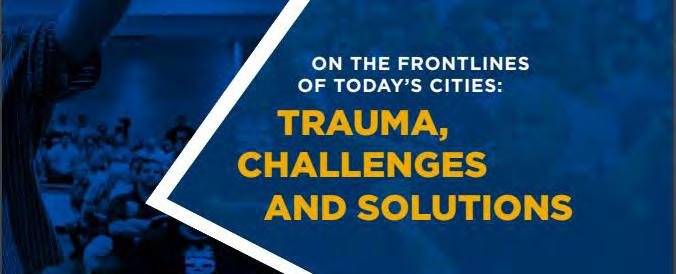
As a result, NLC looked into the causes contributing to this increase in hostility, what impacts these behaviors are having on municipalities and those who work for them, and how steps can be taken to mitigate these threats or protect municipal workers.
Read the full report on the NLC website: tinyurl. com/civility-report.
For more information contact: Dayln Van Laanen EMPA Coordinator dayln@pdx.edu | 503-725-5165 pdx.edu/public-administration/empa • Saturday classes • Created for working professionals • Hassle-free registration • Bridge the gap and elevate your career to that next level!! • 10+ years of professional experience required Take your career to the next level without missing a beat with an EMPA degree!! 33 www.orcities.org Second Quarter 2023 | LOCAL FOCUS
TGM 2023 Grant Application Now Available; Webinar Scheduled
The 2023 Transportation and Growth Management (TGM) Program Planning Grant Application packet is now available. It can be found on the TGM Planning Grants webpage
Applications are due July 27, 2023; award announcements will be mailed in September.
TGM is a joint effort of two state agencies: the Oregon Department of Transportation and the Oregon Department of Land Conservation and Development. TGM grants are awarded on an annual basis, and provide planning resources to help Oregon jurisdictions address transportation, land use, and growth management issues in their communities.
Proposed projects may be submitted for either of two grant categories:
• Category 1 grants relate to transportation system planning (TSPs), either complete TSPs, TSP updates, TSP refinement plans, individual TSP elements (such as bike and pedestrian or transit plans), and safe routes to school-related infrastructure plans; and

• Category 2 grants are for integrated land use and transportation planning, including area plans, downtown plans, and concept plans for areas being brought into an urban growth boundary.
The total awarded amount will be approximately $2.5 million. Award amounts generally range between $125,000 and $250,000.
Grantees must provide a match in the form of cash, staff time, monetized volunteer time, and direct project expenses. For questions about the TGM grant program, contact:
• Elizabeth Ledet at (503) 986-3205 or elizabeth.l.ledet@odot. oregon.gov, or
• Bill Holmstrom at (971) 375-5975 or bill.holmstrom@dlcd. oregon.gov
Application Webinar
TGM is hosting a webinar to answer your questions about changes to the application, how to fill out the online form, and common mistakes.
Webinar Date: June 13, 2023, 10:30 a.m. to 12 p.m. Pacific Time Register in advance for this webinar: tinyurl.com/4cbfxrej
Healthy buildings, healthy savings.
Through a full range of systems and digital solutions, Johnson Controls make your buildings smarter, safer, more comfortable, more efficient, and, ultimately, more sustainable. Better for your people. Better for your bottom line. Better for the planet.
Discover how we can help you make the smart move. Contact David Nellis, SR. Account Executive Performance Infrastructure Call (503) 858-4757 or david.d.nellis@jci.com

© 2021 Johnson Controls. All rights reserved.
34 | Second Quarter 2023 www.orcities.org
Can Municipal Water be Reclaimed to Benefit Your Community?
In Oregon, there are 148 municipalities and industrial facilities with permitted water reuse (reclaimed water) programs. Will your city be the next to benefit?
Reclaimed water, as defined in ORS 537.131, 540.510 and 540.610, has been used for municipal purposes and after such use, has been treated in a treatment works as defined in ORS 454.010 (5)(a). As a result, the reclaimed water is suitable for direct beneficial use that could not otherwise occur.

The use of reclaimed municipal water can help offset water demand from traditional water sources. It can be a viable option for municipalities to reduce costs, and for water users looking for an additional water supply (irrigation and industrial uses).

Treated municipal wastewater or “reclaimed water” may be used for irrigation or other beneficial uses as an exempt use without a water use permit, should it meet certain conditions. First, the reclaimed water must first be treated and discharged, under either a national pollutant discharge elimination system (NPDES) or water pollution control facilities (WPCF) permit issued by the Oregon Department of Environmental Quality (DEQ). In addition, the entity intending to use the reclaimed water as an exempt use must first complete and file a Municipal Reclaimed Water Registration Form with DEQ and obtain approval with DEQ and the Water Resources Department (WRD). The reclaimed water may be retained in a pond or lagoon without a reservoir permit prior to reuse. (Depending on the size of the reten tion structure, WRD approval of the engineering plans may be required.)
Currently, a registration of reclaimed water has no WRD associated fee. For additional information, instructions, and forms, visit our

website at tinyurl.com/owrd-reclaimed. If you have questions about using reclaimed municipal water in Oregon, please contact Joan Smith at (503) 986-0892 or Joan.M.Smith@water.oregon.gov. CONSERVATION CORNER 35 www.orcities.org Second Quarter 2023 | LOCAL FOCUS
“Save Money. Save Lives.”
As a member of LOC you receive premium procurement services through NPPGov.

NPPGov is a cooperative purchasing program serving the following industries:
• Government

• Education
• Law Enforcement
• Fire Rescue
• EMS
• Nonprofits



• Associations
All members have access to a broad range of publicly solicited contracts with discounted pricing. Restrictions may apply. nppgov.com | 877.239.8847 |
Questions?
Contracts Include:

customerservice@nppgov.com
36 | Second Quarter 2023 www.orcities.org
A round the State Stories from across Oregon

Good things our cities have been doing all across the state.

37 www.orcities.org Second Quarter 2023 | LOCAL FOCUS
TALENT Tree City of the Year
The Oregon Department of Forestry recently selected Talent to be the state’s Tree City of the Year for 2023. To be eligible for Tree City of the Year honors, a community must have a Tree City USA designation. To achieve this, communities must meet requirements of the national Arbor Day Foundation for having basic tree-care policies and management in place.
Talent has held that status for 23 years. Last year was also the fourth time the city earned an Oregon Department of Forestry (ODF) Growth Award for significant improvements to its urban forestry program.

“After being devastated by the 2020 wildfire, Talent has rallied as a community, becoming very invested and committed to their urban forest. In the face of traumatic and devastating loss, they still managed to outscore all of our other growth award applicants,” said ODF Urban and Community Assistance Forester Brittany Oxford.
“Most notably, they have been mapping their canopy with an equity-informed focus guiding their reforestation efforts. The city is working hard to ensure the historically underserved in Talent are the starting point from which they begin to reforest and recover,” Oxford said in a news release issued by Jackson County Emergency Management.
Before the fire, Talent did not have an accurate inventory of its urban trees. With help from ODF urban forestry grants, it has gained access to inventory software from PlanIt Geo (Treeplotter).

The city inventoried 1,500 street and park trees throughout the community – about one-third of its estimated public trees. From this data, Talent is able to figure out the size, diversity, ecosystem services and economic loss resulting from the destroyed portion of its urban forest.
“This recognition was earned by the hard work of so many dedicated people in Talent, from elected city commissioners, Tree Board, volunteers and city staff, such as our new Hazard
Mitigation Coordinator Mike Oxendine,” said Talent Mayor Darby Ayres-Flood. “It shows the resilience and determination of our town to come back even better than we were before the wildfire.”
A certified arborist, Oxendine has been helping Talent with its citywide hazard tree assessment and removal. He has also been staff liaison to the Talent Urban Forestry Committee and is project lead on drafting a master plan for the city’s urban forest. This is in addition to seeking out and overseeing grant funding for hazard mitigation and canopy restoration, including tree plantings.
CITY NEWS
38 | Second Quarter 2023 www.orcities.org
Talent has boosted tree plantings in the wake of devastating wildfires that killed many of its urban trees in 2020 (Courtesy: Oregon Department of Forestry)
MONMOUTH/INDEPENDENCE

MI Trolley Transit System

A recent, well-attended ribbon-cutting event marked the official start of the MI Trolley transit system and featured speeches from local elected officials and Cherriots, and live music from a Western Oregon University band.
“Excitement has been building and we are thrilled to see our sweet little trolley roll through town,” shared Monmouth Mayor Cec Koontz. “We are so fortunate to be able to offer reliable transportation for residents and youth and a fun experience for all visitors to MI Town.”
“I am delighted that the trolley will more closely unite the communities of Independence and Monmouth,” said Mayor John McArdle. “It will be a great addition to our already thriving cities and will enhance the vibrancy of the entire region.”
In 2022, Monmouth and Independence received funding to implement trolley services between the two communities. State representatives provided $3 million in American Rescue Plan (ARPA) grant funds through the state budget to support a local transit service that links downtown Independence, downtown Monmouth, and the Western Oregon University (WOU) campus.


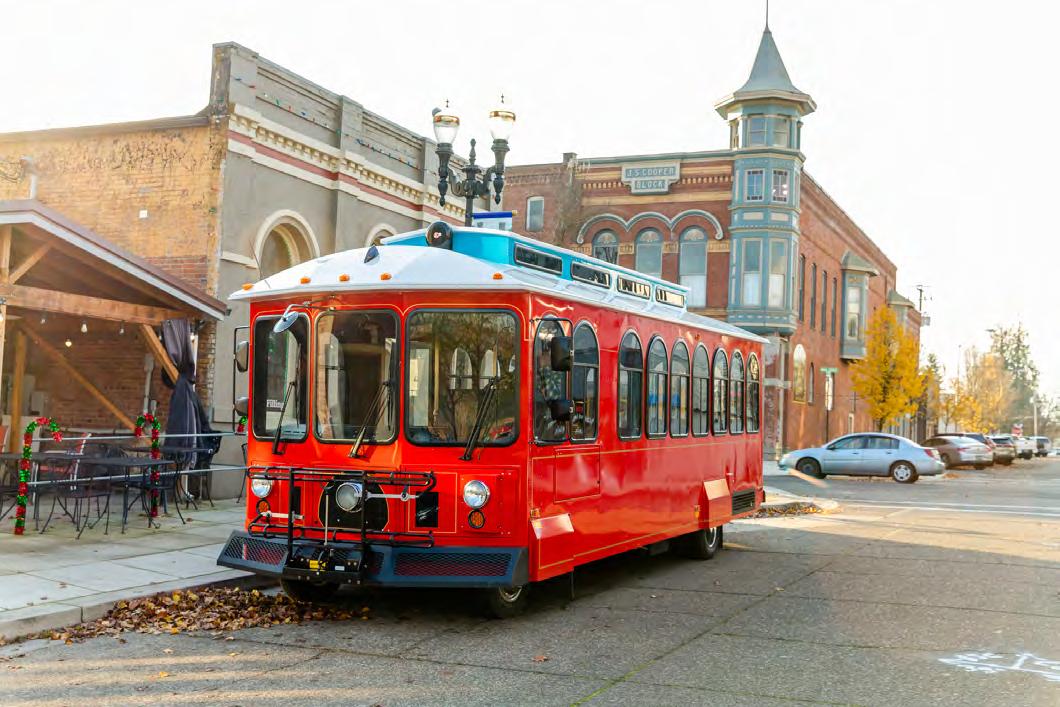
The MI Trolley will run every 15 minutes from 21 designated stops from Independence to Monmouth on Monday through Saturday from 7 a.m. to 9 p.m. and Sunday and holidays from
8 a.m. to 6 p.m.. The trolley seats 14 seated passengers, one wheelchair passenger, and a fold-down seat for two more passengers if no wheelchair is present. A downloadable mobile application shows the trolley’s location in real-time, allowing passengers to find the trolley’s current route.
To learn more and find the MI Trolley route schedule, visit: mitrolley.org

CITY NEWS
sales@signsolutionsusa.com SignSolutionsUSA.com Certified Sign Fabricator Quality Traffic Signs For All Your Needs Including Custom, Campground & More 39 www.orcities.org Second Quarter 2023 | LOCAL FOCUS
REDMOND Security Camera System Upgraded
The city of Redmond is cracking down on graffiti, vandalism and other crimes with nearly 150 security cameras, 100 of them new, helping police keep watch.
“Definitely some significant steps in the right direction,” Christian Armatas, the city’s IT engineer, told Bend’s News Channel 21 KTVZ. “It’s going to give us way greater visibility into our parks and waterfalls and areas that seem to have lots of this graffiti and destruction.”
Armatas described the city’s camera system as a mix of multiple systems, and said the current cameras are about 10 to 15 years old. “Most of the time when we go out there, we find the cameras have been offline for a little while, or we didn’t get the proper angle,” he said.
With the changes to come, city planners won’t have to physically go out to a park to get recorded footage from a network cabinet. Instead, they will have a central database. The upgraded cameras will be placed around the Redmond Airport, water wells and city hall departments.
The Redmond City Council approved $305,000 for the installations across 26 locations. As of late March, the city had planned to begin the installation in mid-April and finish by June. “There has been lots of vandalism, lots of recent graffiti, motorcycles in the Dry Canyon. Ultimately, it’s not going to only act as a deterrent, but help us track down who might be causing some of these issues,” Armatas said, adding the change will help the city follow up with police investigations.
Peace Of Mind Single-Source Managed IT & Cyber Security
Municipal leaders may not be IT experts (and there’s no reason they should be), but they have certain knowledge that IT efficiency is a constant challenge, that throwing money at antiquated hardware and software is madness, and that they and their constituents are one sophisticated cyber attack from disaster.
We know, we work with some of the U.S.’s largest government agencies, financial institutions and Fortune 1000 companies. We start by consolidating IT architecture, making it vastly more efficient and inherently secure, and then layer the world’s most sophisticated cyber security technology on top of that enhanced and “hardened” IT architecture.
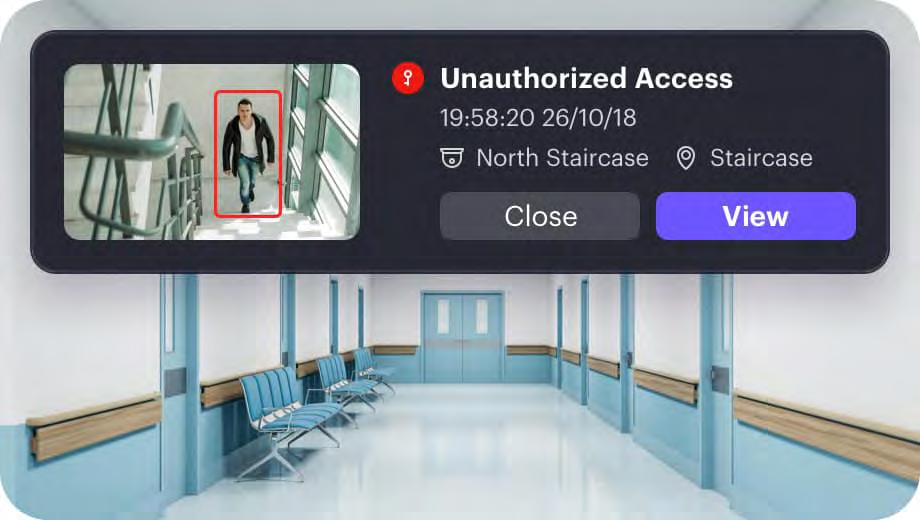
We provide our customers with informed choices. We’ll do our homework, suggest reasonable and affordable options, and work with you to arrive at a managed IT and cyber security package that works with your budget, and the way you work.
Get started with your free municipal IT analysis tailored for Oregon Municipalities:

CITY NEWS
UpstartCyber.com/LOC (904) 676-4512 7307
Street Suite 200 Tigard,
Upstart_half vert_LOC_Ad #2_22aug_v5.indd 1 8/5/22 9:29 AM 40 | Second Quarter 2023 www.orcities.org
SW Beveland
OR 97223
LOWELL New Library Grand Opening
The city of Lowell recently celebrated the grand opening of the new Maggie Osgood Library. The celebration included remarks from Mayor Don Bennett and State Librarian Wendy Cornelisen and a ribbon-cutting ceremony. Afterwards, Library Director Peggy O’Kane lead an interactive storytime for children and adults.
The library is named in memory of Maggie Osgood, a longtime pillar of the community. From the early 2000s until her death in 2019, she grew the city’s library through donations and the efforts of volunteers. Osgood also was the city’s volunteer librarian.
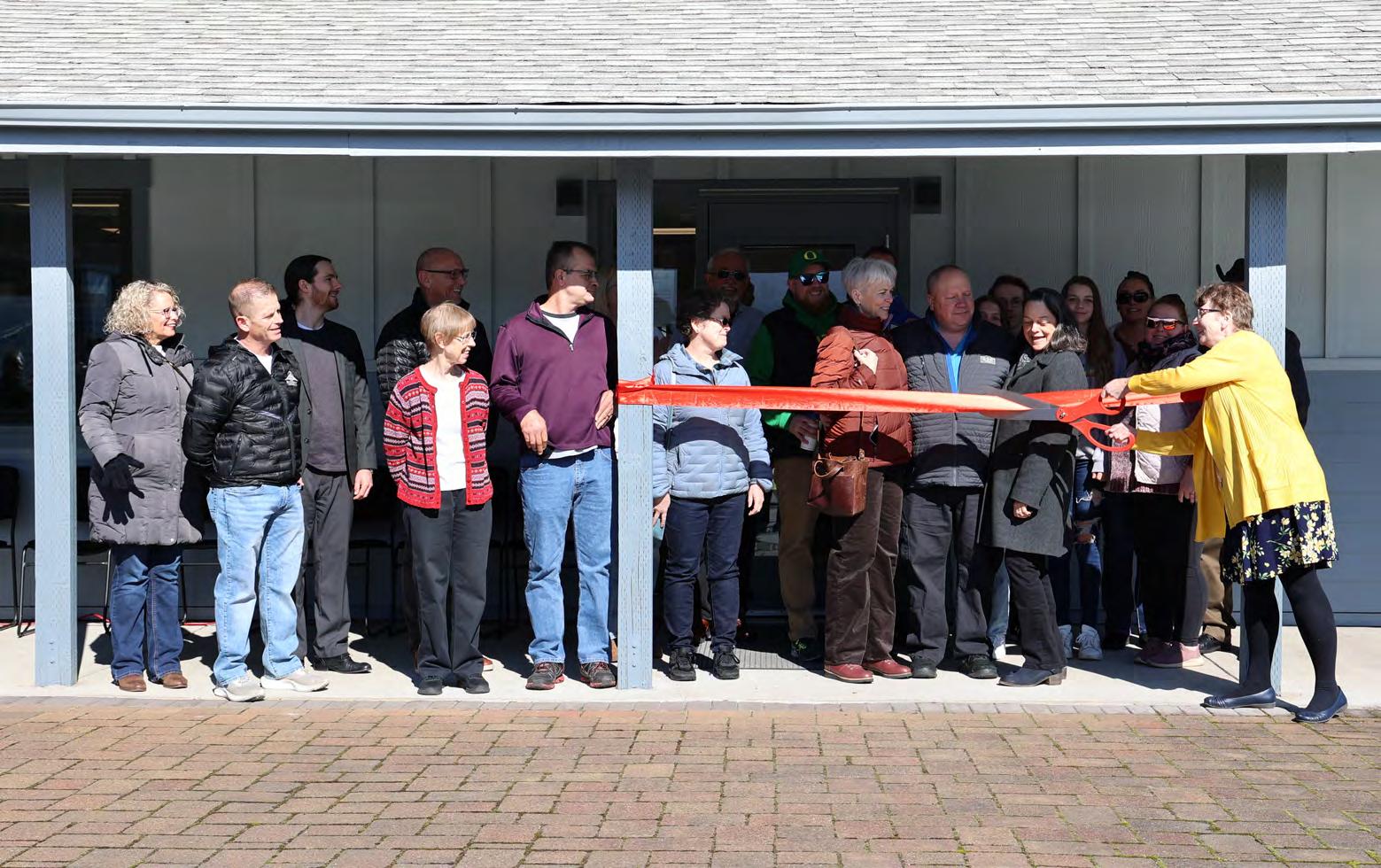
“Maggie loved Lowell and continually worked to benefit the underserved,” Bennett said. “She dreamed big dreams and would be happy to see what her closet-sized start has become.”
In 2019, a winter storm damaged the former city hall and left the library section of the building unusable. The city had been without a library since then. It purchased a former church after the storm to house the new library and city hall offices. City hall offices moved into the building last November.
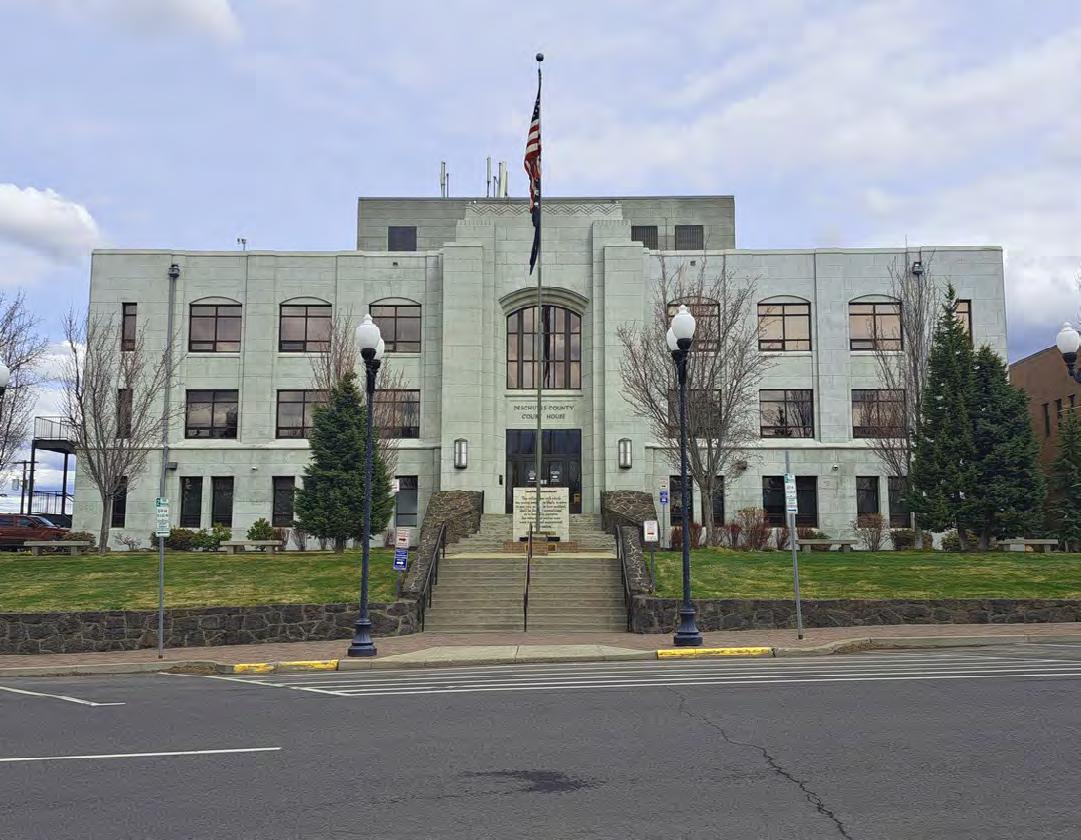
In 2022, the city hired O’Kane, its first paid library director. Since then, she and her team of 15 volunteers have been busy preparing the Maggie Osgood Library for opening day.
“Starting a library from scratch was one of the few things I had not done in my over 40 years in the library field. This has all been a marvelous adventure in serendipity,” she said, reflecting on the city’s search for an experienced library professional at the same time she was seeking to move to the area to be closer to family. The library has a collection of 10,000 titles, including a significant collection of manga and other graphic novels. Its multipurpose room is available for classes, activities and use free of charge for local groups and businesses. Other services the library offers include free wi-fi, laptops available for checkout, and e-books available through the Oregon Digital Library Consortium.
CITY NEWS
cumming-group.com TOP NEWS!
Program + Project Management Cost Management + Estimating
Our team has expanded to an office in Bend!
41 www.orcities.org Second Quarter 2023 | LOCAL FOCUS
Deschutes County Courthouse Expansion
ONTARIO Visitors from Japan Sister City
Five students from Japan recently visited Ontario as part of its 50-year relationship with its sister city, Osakasayama. The partnership encourages Japanese and American citizens to learn about the other’s culture, and frequently involves trips abroad.
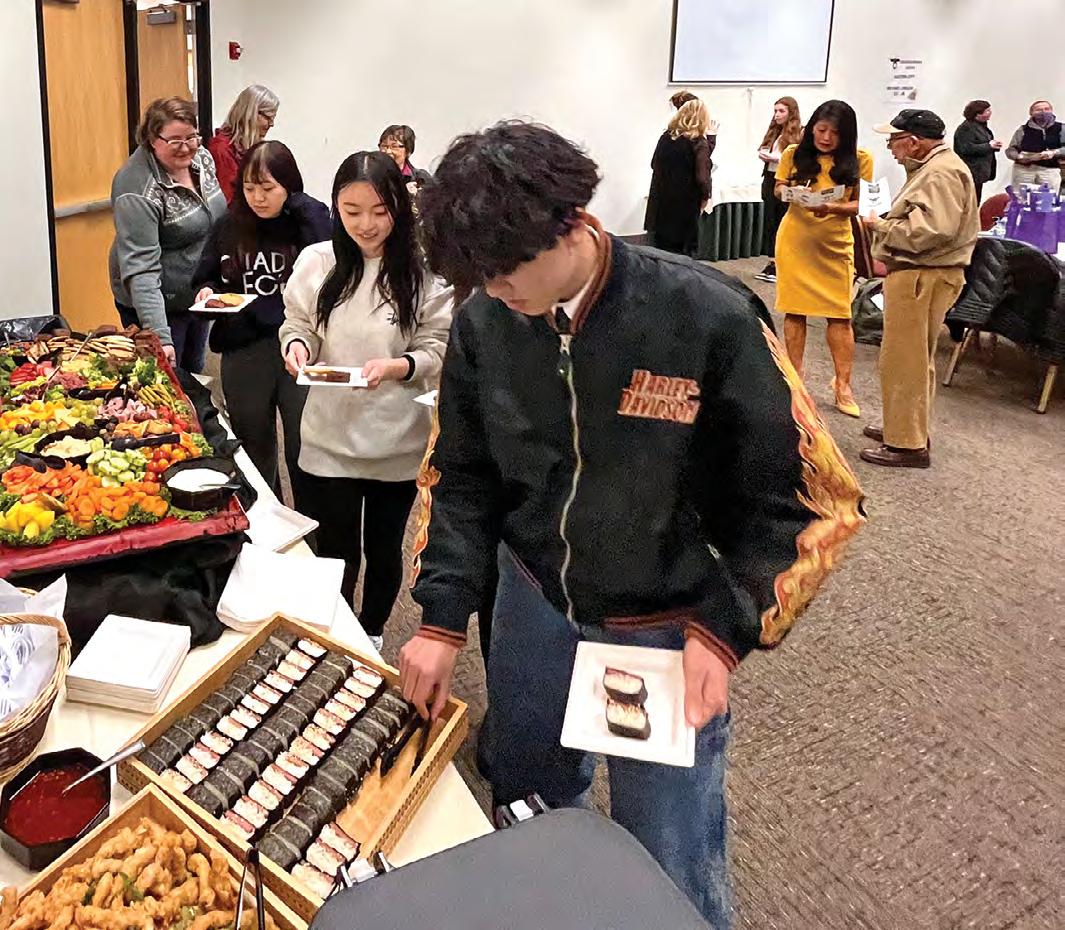
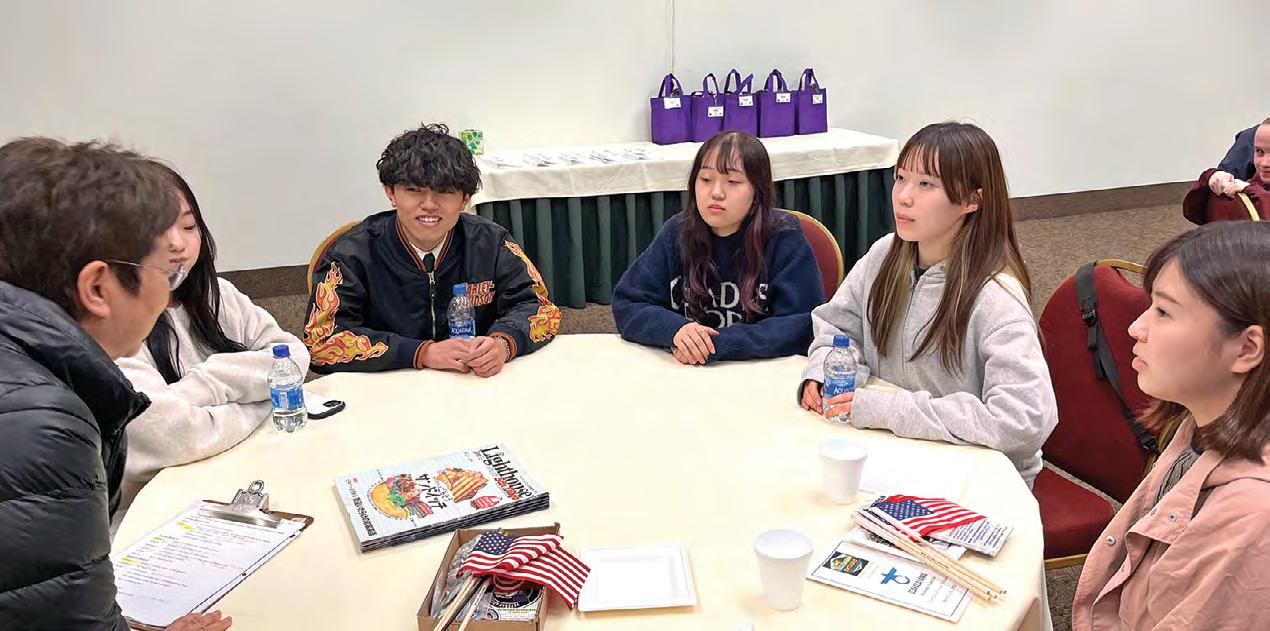
The Ontario Sister City Committee, officials and community members greeted the group, which received rounds of applause and gifts from committee members, city officials, host families and others in the community when they arrived at the Four Rivers Cultural Center in mid-March.
Akiko Rucker provided interpretation for the introductions, which included Ontario Mayor Deborah Folden, Ontario City Manager Dan Cummings, Ontario Area Chamber of Commerce CEO/President John Breidenbach, and Ron Verini and Charlene Pelland with Veteran Advocates of Ore-Ida, the Argus Observer reported.
“You five are the most important citizens we have in the community this week,” Breidenbach said. “We’re glad that you’re here and they’re bringing the program back.”
During his speech, Verini said that people getting to understand other cultures was “probably one of the most important factors of world peace.”
This particular round of students had applied to come in 2020; however, exchange visits stopped temporarily due to the COVID19 pandemic.
The students had a 13-day stay loaded with activities, organized by members of the Ontario Sister City Committee who also
helped arrange travel and tour arrangements along with their host families.
Their schedule included a visit to Beck Kiwanis Park, which has an iconic red bridge with ties to Osakasayama and is said to symbolize the friendship between the sister cities.

CITY NEWS
42 | Second Quarter 2023 www.orcities.org
HILLSBORO Streetlighting Project
In 2019, the city of Hillsboro took a significant step in achieving energy efficiency and enhanced safety for its residents, employees and visitors. Using its Hillsboro 2035 Community Plan and Environmental Stewardship Plan as a guide, the city partnered with McKinstry, a national energy services and construction firm with a regional office in Oregon, to develop and implement a comprehensive city-wide lighting project. The multi-phase project, completed in 2021, included massive retrofits and converted 8,100 lighting fixtures from inefficient High-Pressure Sodium (HPS) to highperforming Light Emitting Diodes (LED). The lighting conversion project also included the integration of an advanced wireless control network, driving further energy savings through intentional dimming and trimming strategies. The execution of this lighting project positioned the city of Hillsboro as a leader among its municipal peers, highlighting an excellent balance between implementation of innovative technology while adhering to sound engineering principles.
In the initial project stages, a city-wide lighting audit delivered meaningful findings. With systems that included a multitude of lighting types, ownership and rate schedules, the city faced a unique challenge—uniformly optimizing lighting. In addition to city-owned fixtures, Hillsboro also housed Portland General Electric (PGE) utility-owned and maintained fixtures, customerowned and PGE-maintained fixtures as well as customer-owned and customer-maintained fixtures. In some cases, utility inventory can be inaccurate by as much as 15-20% resulting in potential inaccurate billing. The city used the audit data to correct inaccurate inventory information and determine appropriate rate schedules moving forward.
The project was made possible through an Energy Savings Performance Contract (ESPC) and the city chose to execute this project with a phased approach to utilize two full budget cycles. McKinstry was selected as the city’s partner because of the firm’s unique approach to developing high-performing and energy-efficient lighting projects and their ability to guarantee energy and cost savings. The ESPC provided the city with a cost-neutral solution to achieve improved lighting systems and sustainable operations for the future. Additional financial support came from McKinstry-secured incentives from local non-profit and utilities partner, the Energy Trust of Oregon, providing approximately $245,550.
The first phase of the project included the replacement of 16 failed outdoor pole-mounted fixtures, retrofitting nearly 200 brand new outdoor fixtures and installing 300 GE LightGrid™ nodes and
14 gateways to serve the whole lighting system. Additional phases included 300 fixtures with control nodes that seamlessly integrate into advanced control systems for improved metering and custom scheduling. Thanks to these advanced controls, the city was able to identify opportunities to reduce lighting energy use through roadway characteristics and traffic patterns analysis, dimming the lights from 1-5 a.m. These custom schedules reduced wattage and lighting energy use by 70%. The reduced wattage, known as trimming, extends fixture life cycles and prevents over lighting areas with a higher concentration of fixtures including residential areas and parks.
In addition to lowering lighting energy use, the completion of the project offers a multitude of environmental benefits including the diversion of lighting fixtures from landfills with fewer replacements and longer life cycles and over 2.1 million kWh savings annually, reducing the carbon emissions by 1.8 million pounds. Dimming and trimming strategies also offer reduced light pollution and safer roadways and neighborhoods while advanced controls systems provide real-time data for quicker response times to outages and maintenance needs.
Speaking on the completed lighting project, Hillsboro Mayor Steve Callaway shared, “Our infrastructure improvement project implemented by McKinstry is helping us make substantial progress in meeting our city’s Sustainability Plan’s goal of an 80% reduction in GHG emissions by 2030.”
The city of Hillsboro remains an exemplar of environmental stewardship in northern Oregon, using project savings to uplift its 2035 Community Plan and further its energy efficiency goals.

CITY NEWS
43 www.orcities.org Second Quarter 2023 | LOCAL FOCUS
For mailing list changes, please email loc@orcities.org
Thank You – 2023 LOC Business Partners PLATINUM


American Leak Detection

American Legal Publishing
Anderson Perry & Associates, Inc.


Avista Utilities



Beery, Elsner and Hammond, LLP
BMS Technologies
Centerlogic IT Services

Cintas
Collect NW/Southern OR Credit
Cumming Group
Davis Wright Tremaine LLP
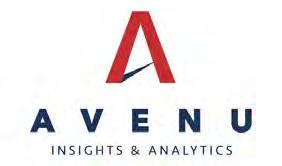

Energy Trust of Oregon

Farallon Consulting

Ferraris Investigations
GOLD
FFA Architecture + Interiors, Inc
Hawkins Delafield & Wood LLP


HECO Engineers
Jacobs
Jordan Ramis PC
Kaiser Permanente
Lumen
MacDonald-Miller Facility Solutions

Merina+Co
Mersereau Shannon LLP

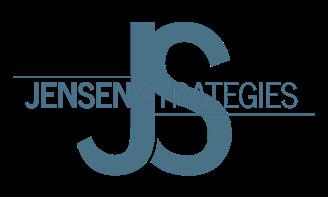



Northwest Playground Equipment
Northwest Code Professionals

Oregon Association of Water Utilities



Oregon Corrections Enterprises
Oregon DAS Procurement Services

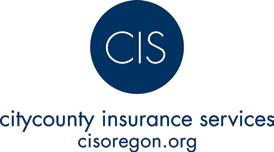


Oregon Dept. of Environmental

Quality - Clean Water State
Revolving Fund
Pacific Power
Pension Portal
Republic Services
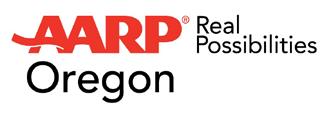

Ring Bender LLLP
Rural Development Initiative
Summit Cleaning and Restoration

Town Web Design
US Cellular
Waste Management of Oregon
League of Oregon Cities 1201 Court St. NE Suite 200 Salem,
Oregon 97301
RETURN SERVICE REQUESTED


























































































 By Melody Finnemore
By Melody Finnemore


































































































